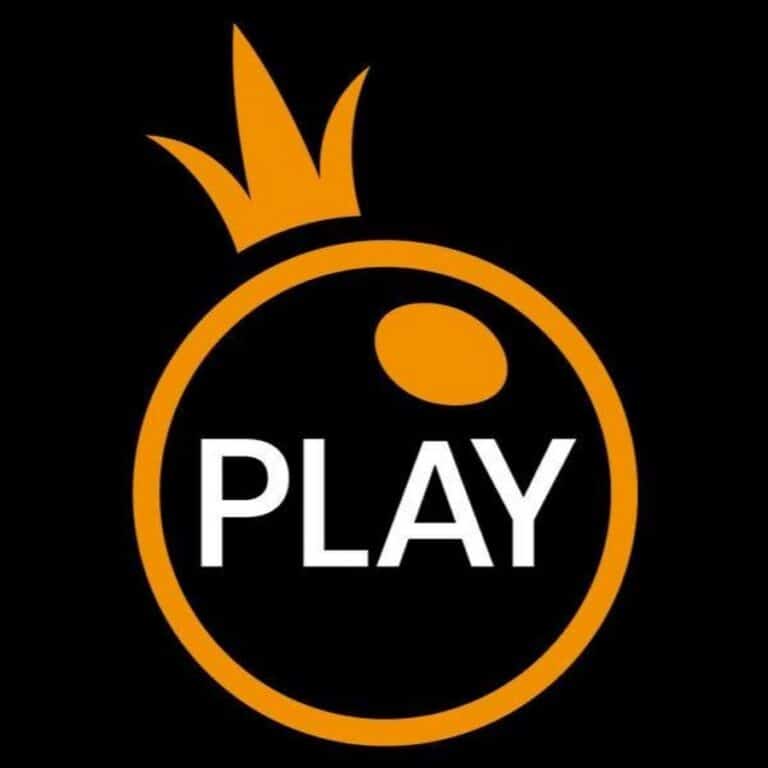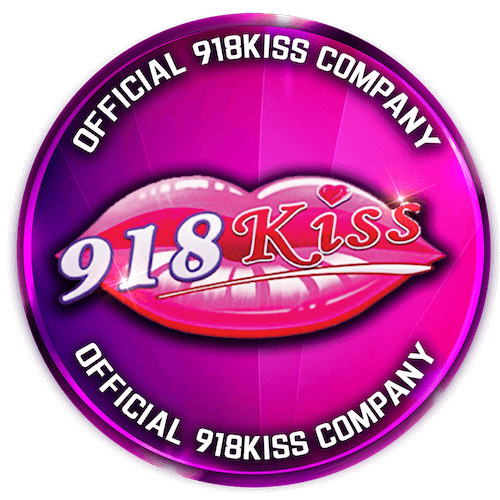

สล็อตเว็บตรง แตกง่าย ไม่มีขั้นต่ำ เว็บสล็อตใหม่ล่าสุด ปี 2024 บริการตลอด 24 ชั่วโมง
การเข้าใช้บริการ สล็อตเว็บตรง เป็นหนึ่งในกิจกรรมยอดนิยมที่ได้รับความสนใจจากบรรดาสมาชิกเป็นอย่างมาก โดยเฉพาะอย่างยิ่งเมื่อได้เจอกับเว็บ สล็อตแตกง่าย ที่จะมอบประสบการณ์ความสนุกสนานและตื่นเต้นเร้าใจให้กับผู้เล่นอย่างเต็มที่ เว็บของเราไม่เพียงแต่มอบความบันเทิงเท่านั้น แต่ยังเป็นช่องทางในการสร้างรายได้ให้กับคุณอีกด้วย เรามุ่งมั่นที่จะสร้างความเชื่อมั่นและไว้วางใจให้กับสมาชิกทุกท่าน ด้วยการให้บริการที่ปลอดภัยและน่าเชื่อถือ 100% เราภูมิใจที่มีผู้เล่นจำนวนมากเลือกใช้บริการของเรา หากคุณยังมีข้อสงสัย สามารถเข้ามาสำรวจเว็บไซต์ของเราก่อนตัดสินใจสมัครสมาชิกได้ทันที
ในการเลือกใช้บริการเว็บ สล็อตออนไลน์ ความปลอดภัยและความมั่นคงเป็นปัจจัยสำคัญที่ผู้เล่นให้ความสนใจ แต่นอกเหนือจากนั้น ความพึงพอใจในการใช้บริการก็เป็นอีกหนึ่งองค์ประกอบที่ไม่ควรมองข้าม เว็บสล็อตที่ดีควรมีคุณสมบัติที่โดดเด่นและน่าสนใจ เพื่อดึงดูดให้ผู้เล่นกลับมาใช้บริการซ้ำอีกครั้ง
หนึ่งในเสน่ห์ของการเล่น สล็อตเว็บตรง แตกง่าย คือการได้รับประสบการณ์ที่ดีจากการเข้าใช้บริการ จากการศึกษาข้อมูล พบว่าผู้เล่นส่วนใหญ่ให้ความสำคัญกับเรื่องนี้เป็นอย่างมาก การนำเสนอโปรโมชั่นและสิทธิประโยชน์ที่คุ้มค่า เป็นอีกหนึ่งปัจจัยที่ช่วยเพิ่มความพึงพอใจให้กับผู้เล่น ยกตัวอย่างเช่น เกมสล็อต ที่มาพร้อมกับโปรโมชั่นพิเศษ ไม่ว่าจะเป็นโบนัสเงินฝาก ฟรีสปิน หรือแม้แต่การแจกรางวัลใหญ่ ล้วนแล้วแต่เป็นสิ่งที่ผู้เล่นต้องการและคาดหวังจากการเข้าใช้บริการ เว็บสล็อตใหม่ล่าสุด นอกจากนี้ ระบบการฝากถอนที่รวดเร็วและเสถียร รวมถึงการมีเกม สล็อตแมชชีน ให้เลือกเล่นอย่างหลากหลาย ก็เป็นอีกปัจจัยที่ช่วยเสริมสร้างความน่าสนใจให้กับเว็บสล็อต
มาทำความรู้จักกับ สล็อตเว็บตรง เว็บไซต์ที่ให้บริการเกมส์ สล็อตออนไลน์ แบบครบวงจร
การเข้าใช้บริการ สล็อตเว็บตรง ถือเป็นตัวเลือกที่น่าเชื่อถือและปลอดภัยสำหรับผู้ที่ชื่นชอบการเล่น สล็อตออนไลน์ เว็บไซต์นี้มีจุดเด่นหลายประการที่ดึงดูดผู้เล่น โดยเฉพาะอย่างยิ่งบริการ สล็อตแตกหนัก ที่มอบประสบการณ์การเล่นที่น่าตื่นเต้นและคุ้มค่า เกมสล็อตที่นำเสนอบนเว็บไซต์ได้รับการออกแบบมาเพื่อให้ผู้เล่นได้รับผลตอบแทนสูงสุด พร้อมทั้งความสนุกสนานในการเล่นอย่างเต็มที่ ไม่มีข้อจำกัดด้านเวลาหรือวงเงินในการเดิมพัน ผู้เล่นสามารถปรับเบทได้ตามต้องการ นอกจากนี้ ยังมีบริการสอนเล่นสำหรับมือใหม่ที่เพิ่งเริ่มต้น เพื่อให้สามารถเข้าใจและเล่นได้อย่างมั่นใจ
ก่อนเริ่มใช้บริการ สิ่งสำคัญที่ควรทำคือการศึกษาเว็บไซต์และวิธีการใช้งานในฟีเจอร์ต่างๆ ให้เข้าใจอย่างถ่องแท้ การทำความคุ้นเคยกับการทำงานขั้นพื้นฐานของเว็บไซต์จะช่วยให้ผู้เล่นสามารถใช้งานได้อย่างราบรื่นและมีประสิทธิภาพ หากมีข้อสงสัยหรือไม่เข้าใจในจุดใด สามารถศึกษาและสอบถามจนกว่าจะเข้าใจได้อย่างชัดเจน เว็บสล็อต นี้มุ่งมั่นที่จะมอบประสบการณ์การเล่นที่ดีที่สุดให้กับผู้เล่น ด้วยการนำเสนอเกมคุณภาพ บริการที่เป็นเลิศ และสภาพแวดล้อมการเล่นที่ปลอดภัย ผู้เล่นสามารถเพลิดเพลินไปกับความตื่นเต้นของ เว็บสล็อตออนไลน์ พร้อมทั้งมีโอกาสในการรับรางวัลใหญ่และผลตอบแทนที่คุ้มค่า นี่จึงเป็นตัวเลือกที่น่าสนใจสำหรับผู้ที่ต้องการความบันเทิงและโอกาสในการสร้างรายได้จากการเล่นสล็อตออนไลน์
ความหมายของ สล็อตเว็บตรง ไม่ผ่านเอเย่นต์ คืออะไร
สล็อตเว็บตรง คือ แพลตฟอร์มออนไลน์ที่มอบประสบการณ์การเล่นเกมสล็อตและคาสิโนที่หลากหลายให้กับผู้เล่น เว็บไซต์เหล่านี้ได้รับการรับรองและดำเนินการอย่างถูกต้องตามกฎหมายของต่างประเทศ พร้อมทั้งได้รับการสนับสนุนจากผู้พัฒนาระบบ คาสิโนออนไลน์ ชั้นนำ ซึ่งรับประกันคุณภาพของเกมและความเป็นธรรมในการเล่น หนึ่งในจุดเด่นของสล็อตเว็บตรง คือโอกาสในการได้รับรางวัลใหญ่ที่ง่ายและเป็นจริง ผู้เล่นสามารถเพลิดเพลินไปกับเกมที่มีคุณภาพสูง พร้อมทั้งมีโอกาสในการชนะรางวัลมากมาย นอกจากนี้ เว็บไซต์ยังมีระบบจัดการที่มีประสิทธิภาพ เพื่ออำนวยความสะดวกให้กับผู้ใช้งาน
ระบบจัดการสมาชิกใน สล็อตเว็บตรงไม่ผ่านเอเย่นต์ ช่วยให้ผู้เล่นสามารถจัดการบัญชีของตนเองได้อย่างง่ายดาย ในขณะที่ระบบฝากและถอนเงินอัตโนมัติช่วยให้การทำธุรกรรมทางการเงินเป็นไปอย่างรวดเร็วและปลอดภัย นอกจากนี้ ผู้เล่นยังสามารถรับโปรโมชั่นและสิทธิพิเศษต่างๆ ได้ด้วยตนเอง ผ่านระบบที่ออกแบบมาเพื่ออำนวยความสะดวกสูงสุด ด้วยการผสมผสานระหว่างความหลากหลายของเกม ความปลอดภัยในการเล่น และระบบจัดการที่มีประสิทธิภาพ สล็อตเว็บตรง ไม่ผ่านเอเย่นต์ จึงเป็นตัวเลือกที่น่าสนใจสำหรับผู้ที่ชื่นชอบการเล่นสล็อตและคาสิโนออนไลน์ ผู้เล่นสามารถเพลิดเพลินไปกับประสบการณ์การเล่นที่สนุกสนาน ตื่นเต้น และได้รับผลตอบแทนที่คุ้มค่า ภายใต้สภาพแวดล้อมการเล่นที่ปลอดภัยและน่าเชื่อถือ
จุดเด่นของเว็บเรา สล็อตเว็บตรง อันดับ 1 ที่มีความน่าสนใจที่สุด มีความน่าเชื่อถือ และมีผู้ใช้บริการมากมายในปัจจุบัน
ถ้าคุณกำลังมองหาประสบการณ์การเล่น สล็อตเว็บตรง อันดับ 1 ที่ดีที่สุดในปี 2024 การเลือกแหล่งบริการที่เหมาะสมเป็นสิ่งสำคัญ สล็อตเว็บตรงเป็นตัวเลือกที่น่าสนใจสำหรับผู้ที่ต้องการเพลิดเพลินไปกับเกมสล็อตคุณภาพสูง พร้อมโอกาสในการทำกำไรมหาศาล
- เมื่อเล่นเกมส์พนันผ่าน สล็อตเว็บตรง คุณสามารถมั่นใจได้ว่าจะได้รับประสบการณ์การเล่นที่ยุติธรรมและปลอดภัย เนื่องจากเว็บไซต์เหล่านี้ได้รับการจดทะเบียนและได้รับใบอนุญาตจากหน่วยงานกำกับดูแลในต่างประเทศ ซึ่งรับประกันความโปร่งใสและความซื่อสัตย์ในการดำเนินการ
- การเล่นผ่าน เว็บตรงสล็อต ยังช่วยให้คุณเข้าถึงเกมได้โดยตรง โดยไม่ต้องผ่านเอเย่นต์หรือคนกลาง ทำให้การเล่นเป็นไปอย่างราบรื่นและไม่มีสะดุด คุณสามารถมุ่งเน้นไปที่การเล่นเกมและการทำกำไรได้อย่างเต็มที่ โดยไม่ต้องกังวลเรื่องความปลอดภัยหรือความน่าเชื่อถือ
- ด้วยระบบที่มีเสถียรภาพและการเข้าถึงได้จากทุกที่ทั่วประเทศไทย ไม่ว่าคุณจะอยู่ที่ไหน คุณก็สามารถเพลิดเพลินกับเกมสล็อตได้อย่างราบรื่นและไม่มีสะดุด นอกจากนี้ ด้วยโปรโมชั่นและโบนัสมากมาย คุณมีโอกาสลุ้นรับรางวัลใหญ่และทำกำไรได้มากขึ้น
- เว็บสล็อตตรง เป็นอีกหนึ่งตัวเลือกที่น่าสนใจสำหรับผู้ที่ชื่นชอบความสะดวกสบายและความรวดเร็วในการเล่น ด้วยระบบอัตโนมัติที่ทันสมัย คุณสามารถเพลิดเพลินกับเกมสล็อตได้อย่างต่อเนื่องและมีประสิทธิภาพ เพิ่มโอกาสในการชนะรางวัลใหญ่ได้มากขึ้น
ในปี 2024 การเลือก เล่นสล็อต ผ่านแหล่งบริการที่น่าเชื่อถือและมีคุณภาพ เป็นกุญแจสำคัญในการสร้างประสบการณ์การเล่นที่น่าตื่นเต้นและคุ้มค่า ด้วยสล็อตเว็บตรงและสล็อตออโต้ คุณสามารถเข้าสู่โลกของเกมสล็อตที่มีความหลากหลาย ความปลอดภัย และโอกาสในการทำกำไรที่ยอดเยี่ยม
ข้อดีของ สล็อตเว็บตรง ที่ดีที่สุด กับเหตุผลที่คุณไม่ควรพลาดที่จะเล่นกับเว็บของเรา
ในปัจจุบันมีเว็บไซต์ที่ให้บริการเกม สล็อตเว็บตรง ที่ดีที่สุด เป็นจำนวนมาก จนแทบจะนับไม่ถ้วน หากท่านกำลังสนใจที่จะเล่นเกมสล็อตและต้องการได้รับเงินรางวัลแบบง่ายๆ สล็อตเว็บตรงที่ดีที่สุด ถือเป็นตัวเลือกที่น่าสนใจ ซึ่งมีเกมสล็อตให้บริการตอบโจทย์ความต้องการของผู้เล่นทุกท่าน นับเป็นหนึ่งในแหล่งบริการที่น่าจับตามองในขณะนี้ ข้อดีของการเล่นเกม สล็อตเว็บตรง กับเว็บไซต์ที่เราแนะนำมีดังต่อไปนี้
- เปิดให้บริการเล่นสล็อตทุกครั้ง รับประกันได้ว่าจะได้รับเงินรางวัลครบทุกบาท ไม่ว่าจะเล่นได้เป็นหลักร้อย หลักพัน หรือหลักหมื่น ทางเว็บจะจ่ายให้อย่างแน่นอน ทำให้ผู้เล่นทุกท่านสบายใจได้ว่าจะได้รับเงินรางวัลโดยไม่มีการหักค่าธรรมเนียมใดๆ
- ออกแบบระบบให้สะดวกในการฝากถอนเงินแต่ละครั้ง ด้วยความรวดเร็วและง่ายดาย เพื่อให้ผู้เล่นสามารถทำธุรกรรมทางการเงินได้อย่างคล่องตัวในการเข้าเล่นเกมสล็อตและทำกำไร ทั้งยังฝากถอนได้โดยไม่มีขั้นต่ำ
- สามารถเล่นเกม สล็อตมือถือ ได้บนมือถือ ทั้งในระบบ Android และ iOS หรือหากต้องการเล่นบนคอมพิวเตอร์ ก็รองรับทั้ง Windows และ Mac OS เพื่อให้ผู้เล่นสามารถเข้าถึงได้ง่ายไม่ว่าจะใช้อุปกรณ์ใด
- มีระบบทดลองเล่นฟรีก่อนเล่นจริง เพื่อให้ผู้เล่นมีประสบการณ์และความมั่นใจมากขึ้น ทำให้สนุกไปกับเกมสล็อตได้อย่างเต็มที่ โดยไม่ต้องกังวลแม้จะเล่นไม่เก่ง
สล็อตเว็บตรง นี้สร้างประสบการณ์การเล่นรูปแบบใหม่ ผ่านทางเข้า pg slot ที่จะทำให้ผู้เล่นเข้าถึงเกมสล็อตได้ง่ายขึ้นกว่าเดิม เล่นได้ลุ้นรับเงินรางวัลจริง ลองเล่นผ่านแหล่งบริการชั้นนำนี้ รับรองไม่ผิดหวังอย่างแน่นอน


โบนัสและโปรโมชั่น มีให้เลือกมากมายที่ สล็อตเว็บตรง รองรับผู้เล่นทุกคน ไม่ว่าจะเป็นผู้เล่นใหม่หรือเก่า
หนึ่งในจุดเด่นที่ทำให้ สล็อตเว็บตรง ได้รับความนิยมอย่างมาก นอกเหนือจากการเป็นเว็บตรงแล้ว ก็คือโปรโมชั่นรับโบนัสที่น่าสนใจ ซึ่งถือเป็นอีกหนึ่งเสน่ห์ของเว็บนี้เลยทีเดียว และเราได้กล่าวถึงประเด็นนี้ไว้ตั้งแต่ต้นแล้ว การเล่น สล็อตไม่มีขั้นต่ำ อาจช่วยเพิ่มโอกาสในการรับโบนัสได้มากขึ้นด้วย หากไม่คุ้นเคยกับการใช้วอลเล็ต ไม่ต้องกังวล เพราะแอดมินของเราพร้อมให้คำแนะนำ เพียงแค่ไว้วางใจเว็บของเรา
สมาชิกที่เลือกเล่นเกมกับเว็บไซต์ของเราหลายคนอาจสงสัยว่า จะต้องทำอย่างไรเพื่อให้ได้รับโบนัสหรือโปรโมชั่น เนื่องจากโปรโมชั่นเหล่านี้มอบประโยชน์สูงสุดให้กับผู้เล่น ช่วยเพิ่มโอกาสในการประสบความสำเร็จ นี่คือหนึ่งในเว็บที่มีโปรโมชั่นมากมายให้เลือกสรร นอกจากการกดรับโปรโมชั่นแล้ว ยังมีอีกปัจจัยสำคัญที่จะช่วยให้ผู้เล่นได้รับประโยชน์สูงสุดจากการเล่น สล็อตเว็บตรง แตกบ่อย นั่นก็คือการวางแผนจัดการการเงิน ซึ่งทางเว็บได้เปิดให้ ทดลองเล่นสล็อต pg เพื่อช่วยให้ผู้เล่นสามารถวางแผนการเงินได้ดียิ่งขึ้น นอกจากนี้ ยังมีระบบฝากถอนเงินที่ปลอดภัย ผู้เล่นสามารถไว้ใจได้ 100% เรื่องการจัดการธุรกรรมทางการเงิน ไม่มีเว็บไหนที่จะปลอดภัยไปกว่าเว็บของเราอีกแล้ว
เทคนิคการจัดการเงินในการเล่น สล็อตออนไลน์ เพื่อให้ประสบความสำเร็จในการเล่น
สำหรับผู้เล่นมือใหม่ที่ต้องการเรียนรู้เทคนิคการเล่น สล็อตเว็บตรง เพื่อให้ได้กำไรจากการเล่นเกมสล็อต สิ่งแรกที่ต้องทำคือการศึกษาว่าจะต้องทำอย่างไรเพื่อให้ได้รับประโยชน์สูงสุดจากการเล่น ซึ่งวิธีที่ง่ายที่สุดก็คือการเลือกเล่นกับเว็บของเราเท่านั้น เหตุผลที่แนะนำให้เลือกใช้บริการเว็บของเรา ประการแรกคือเรามีความปลอดภัยและให้บริการแบบตรงไม่ผ่านเอเย่นต์ อีกทั้งยังสามารถฝากถอนได้โดยไม่มีขั้นต่ำ นอกจากนี้ สล็อตออนไลน์ ของเรายังมีการแจกโบนัสและโปรโมชั่นที่คุ้มค่า ซึ่งจะช่วยเพิ่มความคุ้มค่าในการเล่น โดยเฉพาะอย่างยิ่งสำหรับผู้ที่มีต้นทุนน้อย การเล่น สล็อตแตกหนัก จะเป็นตัวช่วยที่ดี
แม้ว่าจะมีอีกหลายสิ่งที่ผู้เล่นมือใหม่ต้องเรียนรู้ แต่เราขอการันตีได้ว่าเว็บของเรานั้นปลอดภัยและเชื่อถือได้อย่างแน่นอน เมื่อคุณมั่นใจในเว็บของเราแล้ว หลังจากศึกษาเทคนิคต่างๆ มาแล้ว คุณสามารถนำความรู้เหล่านั้นมาใช้กับ สล็อตไม่ผ่านเอเย่นต์ ได้ทันที รับรองได้เลยว่าเทคนิคเหล่านี้จะช่วยให้คุณประสบความสำเร็จอย่างแน่นอน
วิธีการฝากถอนเงินนับเป็นปัจจัยสำคัญอย่างยิ่งในการเลือกใช้บริการ สล็อตเว็บตรง แตกหนัก เพราะไม่มีผู้เล่นคนไหนที่อยากเข้าใช้บริการกับเว็บที่ขาดความปลอดภัยในด้านนี้ แต่เราขอยืนยันว่าเว็บของเรามีความปลอดภัยในทุกๆ ด้าน เมื่อผู้เล่นได้พบกับเว็บไซต์ที่ดีอย่าง สล็อตออนไลน์ แล้ว คุณจะไม่อยากไปใช้บริการกับเว็บอื่นอีกเลย โดยเฉพาะอย่างยิ่งเมื่อนำไปใช้ควบคู่กับการวางแผนการเล่นและการจัดการการเงิน คุณจะมั่นใจได้เลยว่าการเล่นสล็อตของคุณจะประสบความสำเร็จอย่างแน่นอน เว็บของเราไม่ใช่เว็บที่เพิ่งเปิดใหม่ แต่เปิดให้บริการมาเป็นเวลานานแล้ว ดังนั้น ผู้เล่นจึงสามารถไว้วางใจได้อย่างเต็มที่


สล็อตเว็บตรง แตกง่าย ที่มีเกมให้เลือกมากมาย ครบทุกค่าย ทั้ง PG SLOT และ JOKER GAMING และค่ายอื่นๆอีกเพียบ
สล็อตเว็บตรง แตกง่าย ในประเทศไทย เป็นผู้ให้บริการเกมสล็อตออนไลน์ที่ได้รับความไว้วางใจและน่าเชื่อถือที่สุด สำหรับนักลงทุนส่วนใหญ่ มักจะเลือกเว็บสล็อตที่เป็นเว็บตรง เนื่องจากมีข้อดีมากมาย อาทิ เปิดโอกาสให้ผู้เล่นที่มีเงินทุนจำกัด สามารถเข้าร่วมเดิมพันได้ด้วยเงินขั้นต่ำเพียง 1 บาท แต่มีโอกาสลุ้นรับเงินรางวัลได้หลายแสนบาท มีเกมสล็อตให้เลือกเล่นอย่างหลากหลาย ซึ่งนำเข้ามาจากผู้ให้บริการซอฟต์แวร์เกมชั้นนำระดับโลก รับรองได้ถึงคุณภาพและความยุติธรรม เว็บเราเป็น เว็บสล็อตแท้ ของแท้ 100% ไม่มีการดัดแปลงตัวเกมหรือเอาเปรียบผู้เล่นแน่นอน ทำให้สามารถลงทุนได้อย่างปลอดภัย ปราศจากปัญหาการโกงใดๆ คัดสรรค่ายเกมสล็อตที่มีชื่อเสียงมากมาย เช่น PG SLOT และ JOKER GAMING ความน่าเชื่อถือสูงมาให้บริการโดยเฉพาะ เพื่อการันตีประสบการณ์การเล่นที่ดีที่สุดแก่สมาชิก ดังนั้น หากกำลังมองหา สล็อตแตกง่าย ที่มีคุณภาพ ปลอดภัย และพร้อมมอบความสนุกตื่นเต้นจากเกมสล็อตมากมาย เว็บสล็อตตรงอันดับ 1 ของไทยคือตัวเลือกที่ดีที่สุดสำหรับคุณอย่างแน่นอน

เว็บสล็อต PG SLOT เว็บตรง แตกหนัก
PG Slot ค่ายเกมสล็อตออนไลน์ชั้นนำที่กำลังได้รับความนิยมสูงสุดในขณะนี้ เป็นผู้พัฒนาเกมสำหรับอุปกรณ์มือถือที่มีความเชี่ยวชาญและแข็งแกร่งเป็นอย่างมาก ทีมงานมุ่งมั่นพัฒนาระบบเกมอย่างต่อเนื่อง เพื่อมอบประสบการณ์การเล่นที่ดีที่สุดให้แก่ผู้เล่น เกมสล็อตจาก สล็อตพีจี มีรูปแบบที่โดดเด่น ผสมผสานความทันสมัยและความคิดสร้างสรรค์ได้อย่างลงตัว ด้วยกราฟิกที่สวยงาม เอฟเฟกต์เสียงตระการตา และธีมเกมที่หลากหลาย ทำให้ผู้เล่นเพลิดเพลินไปกับการผจญภัยในโลกแห่งเกมสล็อตได้อย่างเต็มที่
นอกจากนี้ เกมสล็อตจาก PG Slot เว็บตรง ที่ให้บริการบนเว็บสล็อตชั้นนำทั้งหมด ยังได้รับการยอมรับและรางวัลมากมายจากองค์กรต่างๆ ในวงการเกม ซึ่งเป็นเครื่องการันตีถึงมาตรฐานและคุณภาพระดับสากล ด้วยความโดดเด่นทั้งในแง่ของรูปแบบเกม ระบบการพัฒนาที่ทันสมัย และเทคโนโลยีล้ำสมัย ทำให้ สล็อต PG เว็บตรง แตกหนัก กลายเป็นค่ายเกมสล็อตออนไลน์ที่ได้รับความนิยมและความไว้วางใจจากผู้เล่นจำนวนมากทั่วโลก หากคุณกำลังมองหาประสบการณ์การเล่นสล็อตที่น่าตื่นเต้นและคุ้มค่า Slot PG คือตัวเลือกที่ดีที่สุดสำหรับคุณ

ทางเข้า JOKER GAMING เว็บตรง
Joker Gaming ผู้นำด้านการสร้างสรรค์เกมสล็อตออนไลน์สำหรับอุปกรณ์มือถือ ได้รับความนิยมอย่างล้นหลามและครองใจผู้เล่นในภูมิภาคเอเชีย ด้วยคอลเลกชันเกมสล็อตที่หลากหลายกว่า 100 เกม ซึ่งพัฒนาด้วยกราฟิกอันน่าทึ่ง เอฟเฟกต์เสียงตระการตา และธีมที่สร้างสรรค์ ทำให้ผู้เล่นได้สัมผัสกับประสบการณ์ความบันเทิงที่ไม่เหมือนใคร เว็บสล็อตตรงของ Joker Slot เป็นเว็บไซต์ที่ให้บริการเกมสล็อตโดยตรงจากผู้พัฒนา ไม่ผ่านเอเย่นต์ ทำให้มั่นใจได้ถึงความปลอดภัยและความเป็นธรรมในการเล่น นอกจากนี้ ยังมีข้อดีในเรื่องของการฝากถอนที่สะดวกรวดเร็ว โดยผู้เล่นสามารถเริ่มต้นเดิมพันด้วยเงินขั้นต่ำเพียง 1 บาท และสามารถถอนเงินรางวัลได้ทันทีหลังจากชนะเดิมพัน
อีกหนึ่งจุดเด่นของ Slot Joker คือการให้บริการลูกค้าที่เหนือชั้น ด้วยทีมงานมืออาชีพที่พร้อมให้ความช่วยเหลือตลอด 24 ชั่วโมง ไม่ว่าจะเป็นปัญหาด้านการเล่นเกม การฝากถอน หรือข้อสงสัยอื่นๆ ผู้เล่นสามารถติดต่อทีมสนับสนุนได้อย่างสะดวกผ่านช่องทางต่างๆ เช่น แชทสด อีเมล หรือโทรศัพท์ ด้วยคุณภาพเกมที่โดดเด่น ความสะดวกในการเล่นผ่านเว็บตรง และการบริการลูกค้าที่เป็นเลิศ ทำให้ สล็อตโจ๊กเกอร์ เป็นค่ายเกมสล็อตออนไลน์ที่ครองใจผู้เล่นมากมาย หากคุณกำลังมองหาความสนุกและความตื่นเต้นจากเกมสล็อต โจ๊กเกอร์สล็อต คือตัวเลือกที่ดีที่สุดสำหรับคุณ

สล็อตค่าย PRAGMATIC PLAY แตกง่าย (PP SLOT)
Pragmatic Play ผู้นำในอุตสาหกรรมเกมออนไลน์ที่โดดเด่นด้วยการให้บริการเกมสล็อตและคาสิโนออนไลน์คุณภาพสูง ได้รับความนิยมและการยอมรับอย่างกว้างขวางจากผู้เล่นทั่วโลก สิ่งที่ทำให้ Pragmatic Play แตกต่างจากผู้ให้บริการรายอื่นคือชื่อเสียงในการนำเสนอเกมสล็อตออนไลน์ที่มอบผลตอบแทนสูง มีโอกาสชนะรางวัลใหญ่ได้ง่าย และจ่ายรางวัลอย่างงอกงาม ทีมพัฒนาของ PP SLOT ใส่ใจในทุกรายละเอียดของเกม ตั้งแต่กราฟิกที่สวยงามตระการตา เอฟเฟกต์เสียงที่น่าตื่นเต้น ไปจนถึงการออกแบบตัวเกมที่ใช้งานง่ายและเข้าใจได้อย่างรวดเร็ว ทุกเกมได้รับการพัฒนาด้วยเทคโนโลยีล่าสุด และมีการอัปเดตปรับปรุงระบบอย่างต่อเนื่อง เพื่อให้มั่นใจว่าผู้เล่นจะได้รับประสบการณ์การเล่นที่ราบรื่นและน่าประทับใจทุกครั้ง
นอกจากคุณภาพของเกมแล้ว สล็อตพีพี ยังให้ความสำคัญกับการให้บริการผ่านเว็บสล็อตตรง ซึ่งหมายความว่าผู้เล่นสามารถเข้าถึงเกมได้โดยตรงจากเว็บไซต์ของผู้ให้บริการ โดยไม่ต้องผ่านตัวกลางหรือเอเย่นต์ใดๆ ทำให้มั่นใจได้ถึงความปลอดภัย ความเป็นธรรม และความโปร่งใสในการเล่น ด้วยคอลเลกชันเกมสล็อตที่หลากหลาย ตั้งแต่เกมคลาสสิกไปจนถึงเกมธีมล่าสุด ผสมผสานกับคุณภาพและนวัตกรรมที่โดดเด่น ทำให้ สล็อต PP กลายเป็นตัวเลือกอันดับต้นๆ ของผู้เล่นสล็อตออนไลน์ทั่วโลก หากคุณกำลังมองหาประสบการณ์การเล่นสล็อตที่น่าตื่นเต้นและคุ้มค่า Pragmatic Play คือค่ายเกมที่คุณไม่ควรพลาดอย่างแน่นอน

ทางเข้า SLOTXO เว็บตรง
SLOT XO ค่ายเกมชั้นนำที่สร้างชื่อเสียงในวงการสล็อตออนไลน์ ด้วยคอลเลกชันเกมสล็อตเว็บตรงที่หลากหลายกว่า 100 เกม ซึ่งแต่ละเกมได้รับการออกแบบและพัฒนาอย่างพิถีพิถัน เพื่อมอบประสบการณ์การเล่นที่น่าประทับใจให้แก่ผู้เล่นทุกคน สิ่งที่ทำให้ ทางเข้า SLOT XO โดดเด่นเหนือค่ายเกมอื่นๆ คือคุณภาพของเกมที่เหนือชั้น ทุกเกมได้รับการสร้างสรรค์ด้วยกราฟิกอันสวยงาม เอฟเฟกต์เสียงที่น่าตื่นเต้น และธีมที่หลากหลาย ไม่ว่าจะเป็นเกมแนวผจญภัย แฟนตาซี หรือคลาสสิก ผู้เล่นจะได้สัมผัสกับโลกแห่งความบันเทิงที่สมจริงและดื่มด่ำ
นอกจากนี้ SLOTXO ยังใส่ใจในทุกรายละเอียดของเกม ตั้งแต่การออกแบบตัวละครและฉาก ไปจนถึงการปรับสมดุลของการจ่ายรางวัล เพื่อให้มั่นใจว่าผู้เล่นจะได้รับความเป็นธรรมและมีโอกาสชนะรางวัลใหญ่ในทุกการหมุน ทีมพัฒนาของ SLOT XO ทำงานอย่างหนักเพื่อสร้างเกมที่ไม่เพียงแต่สวยงาม แต่ยังมอบประสบการณ์การเล่นที่ราบรื่นและสนุกสนานอย่างแท้จริง ด้วยคุณภาพที่เหนือชั้นและความใส่ใจในทุกรายละเอียด ทำให้เกมสล็อตจาก SLOT XO ได้รับความนิยมและการยอมรับจากผู้เล่นทั่วโลก หากคุณกำลังมองหาประสบการณ์การเล่นสล็อตออนไลน์ที่น่าตื่นเต้น คุ้มค่า และสนุกสนานอย่างแท้จริง SLOT XO เว็บตรง คือค่ายเกมที่คุณไม่ควรพลาด รับรองว่าคุณจะได้สัมผัสกับความบันเทิงที่ไร้ขีดจำกัดและโอกาสในการชนะรางวัลใหญ่ในทุกการหมุน

JILI SLOT ทางเข้า
Jili Slot ผู้ให้บริการเกมสล็อตเว็บตรงหน้าใหม่ที่กำลังสร้างกระแสในวงการเกมออนไลน์ แม้จะเป็นค่ายเกมน้องใหม่ แต่ Jili Slot มาพร้อมกับประสบการณ์และความเชี่ยวชาญในการพัฒนาเกมสล็อตคุณภาพสูง ที่พร้อมมอบประสบการณ์การเล่นที่น่าตื่นเต้นและคุ้มค่าให้แก่ผู้เล่นทุกคน จุดเด่นของ Jili Slot คือระบบการจ่ายเงินรางวัลที่โดดเด่นและแตกต่างจากผู้ให้บริการรายอื่นๆ ด้วยการออกแบบตัวเกมที่เน้นการแตกรางวัลหนักและจ่ายเงินง่าย ทำให้ผู้เล่นมีโอกาสลุ้นรับเงินรางวัลก้อนโตได้บ่อยครั้ง สร้างความตื่นเต้นและเร้าใจในทุกครั้งที่หมุนวงล้อ
นอกจากนี้ Jili Slot ทางเข้า ยังใช้ระบบการคำนวณที่ยุติธรรมและเป็นกลางในการกำหนดผลลัพธ์ของการเล่น ซึ่งเป็นหัวใจสำคัญของเกมสล็อตที่ได้รับความไว้วางใจจากผู้เล่น ระบบนี้ถูกพัฒนาขึ้นเป็นการเฉพาะโดยทีมงานมืออาชีพ เพื่อให้มั่นใจว่าทุกการหมุนวงล้อมีความยุติธรรมและโปร่งใส ผู้เล่นสามารถวางใจได้ว่าผลลัพธ์ของเกมไม่ได้ถูกปรับแต่งหรือเอื้อประโยชน์ให้กับฝั่งใดฝั่งหนึ่ง ด้วยคุณสมบัติเด่นเหล่านี้ ทำให้การปั่นสล็อต Jili เป็นประสบการณ์ที่แตกต่างและน่าตื่นเต้นกว่าการเล่นสล็อตทั่วไป หากคุณกำลังมองหาความสนุกสุดมันส์ในรูปแบบใหม่ พร้อมลุ้นรับเงินรางวัลก้อนโต Jili Slot คือตัวเลือกที่เหมาะสำหรับคุณ มาร่วมสนุกและสัมผัสประสบการณ์การเล่นสล็อตที่แตกต่างไปจากที่อื่น ได้แล้ววันนี้ที่ Jili Slot

สล็อต 918KISS เว็บตรง
918Kiss ค่ายเกมชั้นนำจากมาเลเซียที่โดดเด่นด้านการให้บริการดาวน์โหลดและเล่นเกมคาสิโนที่ดีที่สุด ด้วยประสบการณ์กว่า 10 ปีในฐานะผู้ผลิตเกมมือถือระดับแนวหน้า 918Kiss พร้อมมอบประสบการณ์การเล่นเกมออนไลน์ที่น่าตื่นเต้นและสนุกสนานให้กับผู้เล่นทุกคน หนึ่งในจุดเด่นของ 918Kiss คือความสะดวกในการเข้าถึงเกม ผู้เล่นสามารถดาวน์โหลดแอปพลิเคชันได้ทั้งบนระบบปฏิบัติการ iOS และ Android ทำให้สามารถเล่นเกมได้ทุกที่ทุกเวลา ไม่ว่าจะผ่านสมาร์ทโฟนหรือแท็บเล็ต นอกจากนี้ แอปพลิเคชันยังมีการออกแบบที่ใช้งานง่าย มีส่วนติดต่อผู้ใช้ที่เป็นมิตร ทำให้ผู้เล่นสามารถเลือกเกมโปรดและเริ่มเล่นได้อย่างรวดเร็ว
918Kiss เว็บตรง ยังมุ่งมั่นที่จะนำเสนอเกมสล็อตเว็บตรงรุ่นใหม่ล่าสุดที่มีคุณภาพสูงสุดให้กับผู้เล่นชาวไทย ด้วยกราฟิกที่สวยงาม เอฟเฟกต์เสียงที่น่าตื่นเต้น และธีมเกมที่หลากหลาย เหมาะสำหรับผู้เล่นทุกรสนิยม ไม่ว่าจะชื่นชอบเกมแนวผจญภัย แฟนตาซี หรือคลาสสิก ที่นี่มีให้เลือกเล่นอย่างจุใจ นอกจากนี้ 918Kiss ยังให้ความสำคัญกับความปลอดภัยและความเป็นธรรมในการเล่นเป็นอย่างมาก ระบบเกมได้รับการพัฒนาด้วยเทคโนโลยีล่าสุดและผ่านการทดสอบอย่างเข้มงวด เพื่อให้มั่นใจว่าผู้เล่นจะได้รับประสบการณ์การเล่นที่ราบรื่น ปลอดภัย และเป็นธรรมในทุกครั้ง
สล็อตเว็บตรง อันดับ 1 กับโอกาสในการเป็นเศรษฐี ลงทุนน้อยก็รวยได้
สล็อตเว็บตรง อันดับ 1 กลายเป็นช่องทางหารายได้เสริมที่ได้รับความนิยมอย่างมากในปัจจุบัน ด้วยความสะดวกสบาย ผู้เล่นสามารถเข้าใช้บริการได้ตลอด 24 ชั่วโมง เว็บสล็อตของเราให้บริการอย่างโปร่งใส เป็นเว็บใหญ่ที่ได้รับอนุญาตอย่างถูกต้องตามกฎหมาย นำเข้าเกมจากต่างประเทศและค่ายเกมชั้นนำมากมาย ทำให้ผู้เล่นมั่นใจได้ว่าจะไม่ถูกโกง และได้รับความปลอดภัยสูงสุด 100% สิ่งที่ทำให้เว็บของเราแตกต่างจากที่อื่น คือ การนำเสนอ สล็อตแตกบ่อย ที่ส่งตรงจากเจ้าของค่ายเกมใหญ่ เมื่อเลือกเล่นกับเรา ผู้เล่นจะได้สัมผัสประสบการณ์ที่น่าประทับใจ และมีโอกาสสร้างกำไรได้อย่างมหาศาล ใช้เวลาเพียงไม่นาน ก็สามารถคว้าเงินรางวัลก้อนโตกลับบ้านได้แล้ว
เว็บสล็อตไม่ผ่านเอเย่นต์ ของเรายังตอบโจทย์ไลฟ์สไตล์คนยุคใหม่ ที่ต้องการความสะดวกรวดเร็วในการหารายได้ ไม่ต้องเสียเวลาทั้งวันทั้งคืน จึงไม่แปลกที่หลายคนให้ความสนใจและความไว้วางใจเป็นอย่างมาก เมื่อตัดสินใจเล่นกับเรา รับรองว่าจะไม่ผิดหวังอย่างแน่นอน เว็บสล็อตอันดับ 1 ของเราพร้อมมอบความสนุกเพลิดเพลินแบบไม่สะดุด ผ่านระบบอัจฉริยะที่ทันสมัย ใช้งานง่าย ผู้เล่นสามารถดำเนินการต่างๆ ได้ด้วยตนเอง ตั้งแต่สมัครสมาชิก ฝาก-ถอนเงิน ไปจนถึงการเล่นเกม ทุกขั้นตอนเป็นระบบอัตโนมัติทั้งหมด อำนวยความสะดวกให้แก่ผู้เล่นได้เป็นอย่างดี
นักพนันทุกคนที่เป็นสาย ปั่นสล็อต ไม่ควรพลาดที่จะเล่นกับเรา สล็อตเว็บตรง อันดับ 1 ที่ดีที่สุด ในปี 2024
ช่องทางสร้างรายได้ที่เปิดโอกาสให้ทุกคนได้ร่วมสนุกและสร้างกำไรไร้ขีดจำกัด สล็อตเว็บตรง อันดับ 1 คือคำตอบสำหรับผู้ที่ต้องการความมั่งคั่ง ด้วยระบบความปลอดภัยที่เชื่อถือได้ในทุกการเดิมพัน เว็บสล็อตของเราได้รับการยอมรับว่าเป็นผู้นำด้านการสร้างผลกำไรสูงสุดในประเทศไทย นำเสนอ สล็อตแตกง่าย ส่งตรงความบันเทิงและโอกาสร่ำรวยถึงหน้าจอมือถือของคุณ
ไม่ว่าคุณจะเป็นมือใหม่หรือมีประสบการณ์ในการ ปั่นสล็อต การเล่นเกมสล็อตออนไลน์บนเว็บของเราเป็นเรื่องง่ายที่ใครก็ทำได้ เพียงแค่มีสมาร์ทโฟนในมือ คุณก็พร้อมที่จะเข้าสู่โลกแห่งความสนุกและทำกำไรได้ทันที ใช้เวลาไม่กี่นาทีในการทำความเข้าใจกติกา และเริ่มต้นการลงทุนได้อย่างมั่นใจ ทางเว็บยังจัดเตรียมคู่มือและเทคนิคการเล่นเกม สล็อตออนไลน์ เพื่อให้ผู้เล่นได้ศึกษาและนำไปใช้ประโยชน์ในการลงทุน หากยังไม่มั่นใจ เรามีระบบทดลองเล่น สล็อตเว็บตรงอันดับ 1 ที่พัฒนาขึ้นมาเพื่อเอาใจสมาชิกทุกท่าน ให้ได้สัมผัสประสบการณ์การเล่นจริงโดยไม่ต้องเสียค่าใช้จ่ายใดๆ เล่นได้จนกว่าจะพอใจ สร้างความมั่นใจก่อนลงสนามจริง เพื่อความสนุกที่เต็มเปี่ยมยิ่งขึ้นไปอีก
ที่สำคัญ ทางเว็บของเราเป็น เว็บสล็อตไม่ผ่านเอเย่นต์ สร้างความมั่นใจให้กับผู้เล่นในทุกการลงทุน ไม่ต้องกังวลเรื่องความปลอดภัยหรือการถูกโกง ไม่ว่าคุณจะได้กำไรมากแค่ไหน เราพร้อมจ่ายเต็มจำนวนโดยไม่หักค่าธรรมเนียม พร้อมบริการฝากถอนอัตโนมัติที่รวดเร็ว รองรับทุกธนาคารชั้นนำและ True Wallet อำนวยความสะดวกให้ผู้เล่นได้อย่างเต็มที่ เปิดประสบการณ์สร้างรายได้แบบใหม่ ที่ปลอดภัย สะดวก และไร้ขีดจำกัด กับ สล็อตเว็บตรง อันดับ 1 ช่องทางสู่ความร่ำรวยที่ทุกคนเข้าถึงได้ง่าย เพียงปลายนิ้วสัมผัส


สล็อตเว็บตรง ไม่มีขั้นต่ำ รองรับการเข้าเล่นจากทุกแพลตฟอร์ม เล่นผ่านมือถือได้ ทุกระบบ
การลงทุนกับ สล็อตเว็บตรง ไม่มีขั้นต่ำ กลายเป็นช่องทางสร้างรายได้เสริมที่ได้รับความนิยมสูงสุดในปัจจุบัน ด้วยความหลากหลายของเกมและความน่าตื่นเต้นในการเล่น ทำให้ผู้เล่นไม่รู้สึกเบื่อหน่าย เว็บสล็อต ของเราได้รวบรวมเกมสล็อตคุณภาพจากหลายค่ายชั้นนำทั่วโลก ซึ่งได้รับการยอมรับในเรื่องของความปลอดภัยและความน่าเชื่อถือ คุณสามารถมั่นใจได้ว่าไม่ว่าจะเล่นเกมไหนและได้กำไรมากแค่ไหน ทางเราพร้อมโอนเงินเข้าบัญชีของคุณโดยตรงอย่างรวดเร็ว
สล็อตไม่มีขั้นต่ำ ของเราเป็นสถานที่ที่ปลอดภัยและเชื่อถือได้ในการสร้างรายได้ สล็อตออนไลน์ เปิดโอกาสให้คุณได้ลงทุนอย่างอิสระ โดยใช้เงินลงทุนเพียงเล็กน้อย แต่มีโอกาสได้รับผลกำไรที่มหาศาล ด้วยระบบ สล็อตออโต้ การโอนเงินรางวัลเข้าบัญชีของคุณจะเป็นไปอย่างรวดเร็วภายในเวลาไม่กี่นาที ไม่ว่าคุณจะอยู่ที่ไหน เพียงแค่มีสมาร์ทโฟนในมือ ก็สามารถเข้าถึงเกม สล็อตเว็บตรง และสร้างรายได้ได้ทันที นี่คือความสะดวกสบายสูงสุดที่เราต้องการมอบให้กับสมาชิกทุกคน แม้ในยามว่างหรือขณะพักผ่อนอยู่ที่บ้าน คุณก็สามารถหยิบมือถือขึ้นมาและเริ่มต้นสร้างกำไรได้อย่างง่ายดาย
สล็อตเว็บตรง แตกง่าย ช่องทางทำเงินง่ายๆ รวยไว โดยไม่ต้องลงทุนเยอะ
หากคุณกำลังมองหาช่องทางสร้างรายได้เสริมที่สะดวกและง่ายดาย สล็อตเว็บตรง แตกง่าย คือคำตอบที่เหมาะสมที่สุด เว็บสล็อตของเราพร้อมมอบประสบการณ์การเล่นเกมที่ดีที่สุดส่งตรงถึงหน้าจอของคุณ ไม่ว่าคุณจะใช้อุปกรณ์ใดในการเข้าถึง เรามีทางเข้าที่หลากหลาย รองรับทุกระบบและทุกแพลตฟอร์ม เพื่อให้คุณได้สัมผัสความสะดวกสบายในทุกย่างก้าวของการเล่นเกม เรามุ่งมั่นที่จะเป็นแหล่งเรียนรู้และสร้างรายได้จากเกม สล็อตเว็บตรง ที่ลงทุนง่ายและให้ผลตอบแทนสูง เราได้รับการยอมรับว่าเป็นหนึ่งในช่องทางสร้างรายได้เสริมที่ได้รับความนิยมสูงสุด ผู้เล่นสามารถสร้างกำไรได้จริงและเห็นผลอย่างรวดเร็ว นี่คือช่องทางที่เหมาะสมที่สุดสำหรับผู้ที่ต้องการสร้างรายได้พิเศษ
เว็บสล็อตเว็บตรง ของเราให้บริการแบบครบวงจร ตอบโจทย์ทุกความต้องการของผู้เล่นในที่เดียว ด้วย สล็อตแตกง่าย ที่มอบโอกาสให้คุณได้ลุ้นรางวัลใหญ่ได้ทุกวัน และด้วยระบบที่เสถียรและทันสมัย คุณสามารถเพลิดเพลินไปกับการเล่นเกมได้อย่างไม่มีสะดุด เรายังเป็น สล็อตเว็บตรง ไม่ผ่านเอเย่นต์ ที่ใช้ระบบอัตโนมัติทั้งหมด ทำให้การฝากถอนและการเล่นเกมของคุณสะดวกรวดเร็วยิ่งขึ้น และเรายังมีโปรโมชั่นพิเศษสำหรับสมาชิกใหม่ ด้วยการแจกเครดิตฟรีโดยไม่ต้องใช้เงินลงทุนของคุณเอง แม้แต่สมาชิกเก่าของเราก็ยังได้รับสิทธิพิเศษในการรับเครดิตฟรีทุกวัน ที่นี่คือสวรรค์ของนักเสี่ยงโชคที่ต้องการสร้างกำไรอย่างมหาศาล ด้วยความสะดวกสบายสูงสุด
แนะนำเกมส์ สล็อตเว็บตรง แตกง่าย ที่ทำเงินได้ดีที่สุด และมีผู้เล่นมากที่สุดในเว็บของเรา
สำหรับผู้ที่ชื่นชอบเกม สล็อตเว็บตรง แตกง่าย เราขอแนะนำเว็บตรงที่ดีที่สุด ซึ่งเป็นแหล่งรวมเกมสล็อตคุณภาพจากค่ายดังระดับโลก เว็บของเรามุ่งมั่นที่จะมอบประสบการณ์การเล่นที่น่าตื่นเต้นและคุ้มค่าที่สุดให้กับผู้เล่นทุกคน จุดเด่นของเว็บเราคือการนำเสนอเกมสล็อตที่มีค่า RTP หรืออัตราการคืนทุนให้กับผู้เล่นสูง ซึ่งหมายความว่าคุณมีโอกาสชนะรางวัลมากกว่าเว็บอื่นๆ ทั่วไป เกมของเราได้รับการออกแบบมาเป็นพิเศษเพื่อตอบสนองความต้องการของผู้เล่น สล็อตแตกง่าย โดยเฉพาะ ด้วยกราฟิกที่สวยงาม เอฟเฟกต์เสียงที่น่าตื่นเต้น และฟีเจอร์พิเศษมากมายที่ช่วยเพิ่มโอกาสในการชนะรางวัลใหญ่
เกมสล็อตของเรามาจากค่ายผู้ผลิตชั้นนำที่ได้รับการยอมรับจากนักพนันทั่วโลก แต่ละค่ายมีชื่อเสียงโด่งดังในด้านการสร้างสรรค์เกมสล็อตที่มีคุณภาพสูง มอบประสบการณ์การเล่นที่เหนือชั้น และแจกรางวัลใหญ่อย่างต่อเนื่อง เมื่อคุณเลือกเล่น สล็อตเว็บตรง บนเว็บของเรา คุณจึงมั่นใจได้ว่าจะได้รับความบันเทิงอย่างเต็มที่ และมีโอกาสลุ้นรับรางวัลก้อนโตในทุกการหมุน เว็บของเรานำเสนอเกมสล็อตที่แจกรางวัลจุใจ เพื่อให้ผู้เล่นทุกคนได้สัมผัสกับความสนุกและความท้าทายไปพร้อมๆ กับการมีโอกาสชนะรางวัลมากมาย เมื่อคุณเข้ามาเป็นส่วนหนึ่งของเรา เราการันตีว่าคุณจะไม่ผิดหวังอย่างแน่นอน ด้วยระบบการให้บริการที่เสถียรและปลอดภัย การฝากถอนที่รวดเร็วทันใจ และทีมงานคุณภาพที่พร้อมให้บริการตลอด 24 ชั่วโมง

Dreams of Macau จากค่าย PG SLOT
เปิดประสบการณ์ใหม่แห่งความบันเทิงกับ Dreams of Macau เกมสล็อตสุดอลังการจากค่ายดัง PG SLOT ที่จะพาคุณเข้าสู่โลกแห่งความฝันและโอกาสในการคว้ารางวัลใหญ่ เกมนี้เป็นวิดีโอสล็อตที่โดดเด่นด้วยการออกแบบที่ล้ำสมัย มาพร้อมกับ 6 วงล้อและ 5 แถว ซึ่งเพิ่มความตื่นเต้นและความท้าทายให้กับผู้เล่นมากยิ่งขึ้น สิ่งที่พิเศษคือระบบการแตกรางวัลอย่างอิสระ ที่เปิดโอกาสให้คุณมีลุ้นชนะรางวัลอย่างต่อเนื่อง เพียงแค่เดิมพันและหมุนเพียงครั้งเดียว คุณก็มีโอกาสคว้ารางวัลใหญ่ได้ทันที
จุดเด่นของเกมนี้คือช่วงเพย์ไลน์ที่กว้างขวาง ตั้งแต่ 2,025 ไปจนถึง 32,400 เพย์ไลน์ ทำให้ Dreams of Macau กลายเป็นหนึ่งในเกม สล็อตเว็บตรง ที่มอบโอกาสในการชนะรางวัลสูงที่สุด ไม่ว่าคุณจะเป็นมือใหม่หรือผู้เล่นมากประสบการณ์ เกมนี้ก็พร้อมมอบความสนุกและความท้าทายให้กับทุกคนอย่างเท่าเทียม นอกจากระบบการเล่นที่น่าตื่นเต้นแล้ว เกมนี้ยังมาพร้อมกับกราฟิกที่สวยงามตระการตา เอฟเฟกต์เสียงที่ดื่มด่ำ และธีมที่น่าหลงใหล ซึ่งจะพาคุณเข้าสู่บรรยากาศของเมืองแห่งแสงสี มาเก๊า ได้อย่างสมจริง เตรียมพบกับความบันเทิงสุดพิเศษ ที่จะทำให้คุณลืมไม่ลงและต้องการกลับมาเล่นซ้ำแล้วซ้ำอีก

Santa Workshop จากค่าย JOKER GAMING
ต้อนรับเทศกาลแห่งความสุขและมหัศจรรย์กับ Santa Workshop เกมสล็อตสุดพิเศษจากค่าย JOKER GAMING ที่จะพาคุณเข้าสู่โลกของซานตาคลอสและของขวัญสุดพิเศษที่รอคุณอยู่ เกมนี้มาพร้อมกับ 4 วงล้อและ 5 แถว ซึ่งออกแบบมาเพื่อเพิ่มความสนุกและความน่าตื่นเต้นในการเล่น ด้วยระบบการเดิมพันที่ยืดหยุ่น ผู้เล่นสามารถปรับเปลี่ยนการเดิมพันได้ตามความต้องการและงบประมาณของตนเอง ทำให้เกมนี้เหมาะสำหรับผู้เล่นทุกระดับ ไม่ว่าจะเป็นมือใหม่หรือผู้เล่นที่มีประสบการณ์
สิ่งที่น่าสนใจของ Santa Workshop คือระบบการคำนวณช่องจ่ายเงินที่มีความหลากหลาย มีทั้งหมด 9 ช่อง ซึ่งจะแตกต่างกันไปตามรูปแบบแถวที่ชนะ นี่หมายความว่าผู้เล่นมีโอกาสชนะรางวัลสูงในทุกการหมุน เพิ่มความตื่นเต้นและความคุ้มค่าในการเล่นเป็นอย่างมาก นอกจากระบบการเล่นที่น่าสนใจแล้ว Santa Workshop ยังมาพร้อมกับกราฟิกที่สวยงาม สีสันสดใส และธีมที่เข้ากับเทศกาลคริสต์มาสได้อย่างลงตัว เสียงประกอบและเอฟเฟกต์ต่างๆ ช่วยสร้างบรรยากาศของความสนุกสนานและความอบอุ่น ราวกับได้เข้าไปอยู่ในโรงงานของซานตาคลอสอย่างแท้จริง

Pyramid Bonanza จากค่าย PRAGMATIC PLAY (PP SLOT)
เปิดประตูสู่โลกลึกลับของอียิปต์โบราณกับ Pyramid Bonanza วิดีโอสล็อตสุดอลังการจากค่าย PP SLOT ที่จะพาคุณเข้าไปสัมผัสกับตำนาน ขุมทรัพย์ และเรื่องราวน่าตื่นเต้นในดินแดนแห่งฟาโรห์ เกมนี้มาพร้อมกับ 6 วงล้อ 5 แถว ที่ออกแบบอย่างประณีตด้วยกราฟิกสามมิติสุดตระการตา ซึ่งถ่ายทอดบรรยากาศและรายละเอียดของอียิปต์โบราณได้อย่างสมจริง แม้ Pyramid Bonanza จะไม่มีสัญลักษณ์เสริม แต่ก็ชดเชยด้วยสัญลักษณ์กระจายที่มอบโอกาสในการชนะรางวัลใหญ่ให้แก่ผู้เล่นอยู่เสมอ
ด้วยคุณสมบัติการเล่นที่เข้าใจง่าย ผู้เล่นทุกระดับสามารถเข้าร่วมสนุกและลุ้นรับรางวัลได้อย่างเท่าเทียม โดย Pyramid Bonanza มีอัตราการจ่ายเงินคืน (RTP) สูงถึง 95.48% ซึ่งถือเป็นอัตราที่สูงมากเมื่อเทียบกับเกมสล็อตอื่นๆ ในท้องตลาด นอกจากนี้ เกมนี้ยังมอบโอกาสในการคว้ารางวัลใหญ่ด้วยตัวคูณสูงสุดถึง 21,175 เท่า ซึ่งสัญญาว่าจะมอบความตื่นเต้นและความคุ้มค่าให้กับผู้เล่นอย่างแน่นอน Pyramid Bonanza ไม่เพียงแต่จะมอบความบันเทิงอย่างล้ำลึก แต่ยังพาคุณเข้าสู่การผจญภัยที่เต็มไปด้วยความลึกลับ ความตื่นเต้น และเรื่องราวอันน่าหลงใหลของอียิปต์โบราณ เตรียมตัวให้พร้อมสำหรับการออกสำรวจขุมทรัพย์ที่ซ่อนอยู่ในปิรามิด และค้นพบความมหัศจรรย์ที่รอคุณอยู่

Scheherazade จากค่าย SLOT XO
เชิญท่านเข้าสู่โลกแห่งอาหรับอันเร้าใจกับ Scheherazade เกมสล็อตออนไลน์สุดตระการตาจากค่าย SLOT XO ที่จะพาคุณดื่มด่ำไปกับบรรยากาศของเทพนิยายอันเลื่องชื่อและโอกาสในการคว้ารางวัลใหญ่ เกมนี้มาพร้อมกับ 5 วงล้อและ 5 แถว ออกแบบมาเพื่อมอบประสบการณ์การเล่นที่น่าตื่นเต้นและคุ้มค่า ด้วยการเดิมพันขั้นต่ำเพียง 1 บาท ทำให้ Scheherazade เป็นเกม สล็อตเว็บตรง ที่เข้าถึงได้ง่ายสำหรับผู้เล่นทุกระดับ นอกจากนี้ ยังมีอัตราการจ่ายเงินที่หลากหลาย ตั้งแต่ 0.1 ไปจนถึง 30 บาท เพิ่มโอกาสในการชนะรางวัลใหญ่ให้กับผู้เล่นมากยิ่งขึ้น
กฎพื้นฐานของเกมนี้คือการสะสมสัญลักษณ์ที่ชนะตามจำนวนที่กำหนดบนเพย์ไลน์ หรืออย่างน้อย 4 ตำแหน่ง เพื่อปลดล็อคสัญลักษณ์พิเศษในแต่ละระดับ ยิ่งปลดล็อคได้มาก โอกาสในการชนะรางวัลใหญ่ก็ยิ่งสูงขึ้น นอกจากนี้ Scheherazade ยังมีคุณสมบัติพิเศษที่ซ่อนอยู่ เมื่อเปิดใช้งาน จะขยายตารางสล็อตเป็นเค้าโครงขนาด 9×9 เพิ่มโอกาสในการชนะและความคุ้มค่าในการเล่นเป็นอย่างมาก ด้วยกราฟิกที่สวยงามตระการตา เอฟเฟกต์เสียงที่น่าตื่นเต้น และธีมที่น่าหลงใหล Scheherazade จะพาคุณเข้าสู่โลกแห่งเทพนิยายอาหรับอันเร้าใจ เตรียมตัวให้พร้อมสำหรับการผจญภัยครั้งยิ่งใหญ่ ที่เต็มไปด้วยความลึกลับ มนต์ขลัง และโอกาสในการกอบโกยเงินรางวัลมหาศาล

FortunePig จากค่าย JILI SLOT
เฉลิมฉลองปีใหม่จีนด้วย FortunePig เกมสล็อตออนไลน์สุดมงคลจากค่าย JILI SLOT ที่จะนำพาโชคลาภและความร่ำรวยมาสู่ผู้เล่นทุกท่าน ด้วยการออกแบบที่ผสมผสานความเป็นมงคลของวัฒนธรรมจีนเข้ากับความสนุกสนานของเกมสล็อต เกมนี้เป็น สล็อตเว็บตรง แตกง่าย ที่มาพร้อมกับสัญลักษณ์มงคลของจีน ซึ่งให้อัตราการจ่ายเงินสูงสุดถึง 20 เท่า นอกจากนี้ ยังมีสัญลักษณ์พิเศษอย่าง BAR ที่มีการจ่ายเงินสูงสุดแตกต่างกันไป โดยสัญลักษณ์ BAR BAR BAR ให้การจ่ายเงินสูงสุดถึง 10 เท่า ในขณะที่สัญลักษณ์ BAR BAR ให้การจ่ายเงินสูงสุด 8 เท่า และสัญลักษณ์ BAR ให้การจ่ายเงินสูงสุด 5 เท่า ยิ่งผู้เล่นปลดล็อคสัญลักษณ์ในลำดับชั้นที่สูงขึ้นเท่าไหร่ โอกาสในการรับเงินรางวัลก้อนใหญ่ก็จะยิ่งสูงขึ้นเท่านั้น
FortunePig มาพร้อมกับกราฟิกอันสวยงามที่เต็มไปด้วยสีสันและสัญลักษณ์มงคลของจีน เช่น โคมไฟ ซองอั่งเปา และอื่นๆ อีกมากมาย ด้วยดีไซน์ที่สวยงามตระการตา เอฟเฟกต์เสียงที่น่าตื่นเต้น และบรรยากาศที่ชวนให้นึกถึงเทศกาลตรุษจีน ผู้เล่นจะได้ดื่มด่ำไปกับความสนุกสนานและความเป็นสิริมงคลไปพร้อมๆกัน

Jin QianWa จากค่าย 918KISS
Jin QianWa สล็อตออนไลน์สุดมหัศจรรย์จากค่าย 918KISS ที่ผสมผสานเรื่องราวตำนานและความเชื่อเรื่องโชคลาภของจีนเข้ากับเกมสล็อตได้อย่างลงตัว พร้อมมอบประสบการณ์การเล่นที่น่าตื่นเต้นและโอกาสในการคว้ารางวัลใหญ่ให้กับผู้เล่นทุกท่าน เกมนี้ได้รับแรงบันดาลใจจากสัญลักษณ์กบทอง ซึ่งเป็นสัญลักษณ์แห่งความเจริญรุ่งเรืองและโชคลาภในวัฒนธรรมจีน ด้วยกราฟิกอันสวยงาม สีสันสดใส และเอฟเฟกต์เสียงที่น่าตื่นตาตื่นใจ Jin QianWa จะพาคุณดำดิ่งสู่โลกแห่งความมั่งคั่งและความโชคดีตามตำนานจีนโบราณ
ในเกมนี้ สัญลักษณ์กบทองสามารถแทนที่สัญลักษณ์อื่นๆ ทั้งหมดได้ ยกเว้นสัญลักษณ์อักษรจีน ซึ่งถือเป็นสัญลักษณ์พิเศษที่จะช่วยเพิ่มโอกาสในการชนะรางวัลใหญ่ให้กับผู้เล่น เมื่อสัญลักษณ์อักษรจีนปรากฏขึ้นบนวงล้อ เงินรางวัลจะถูกคูณด้วยจำนวนเท่าของยอดเดิมพันที่คุณวางไว้ ยิ่งเดิมพันมาก โอกาสในการคว้าเงินรางวัลก้อนโตก็ยิ่งสูงขึ้นเท่านั้น หนึ่งในจุดเด่นของ Jin QianWa คือการมอบโอกาสในการชนะที่มากกว่าเกมสล็อตทั่วไป ด้วยชุดค่าผสมที่ชนะมากถึง 40 ชุด ทำให้ผู้เล่นมีโอกาสสูงในการคว้ารางวัลในทุกการหมุนวงล้อ ไม่ว่าคุณจะเป็นมือใหม่หรือผู้เล่นที่มีประสบการณ์ เกมนี้ก็พร้อมมอบความสนุกและความบันเทิงให้กับทุกคนอย่างเท่าเทียม
สมัครสมาชิก สล็อตเว็บตรง ฝากถอน True Wallet ไม่มีขั้นต่ำ อิสระในการลงทุน เล่นเท่าไหร่ก็ได้ตามที่ต้องการ
ยินดีต้อนรับสู่ สล็อตเว็บตรง ฝากถอน True Wallet ไม่มีขั้นต่ำ เว็บของเราพร้อมมอบประสบการณ์การเล่นสล็อตที่เหนือระดับและอิสระในการเดิมพันอย่างเต็มที่ เราให้ความสำคัญกับความพึงพอใจของสมาชิกทุกท่าน ด้วยประสบการณ์การให้บริการที่ยาวนาน เราเข้าใจความต้องการของผู้เล่นเป็นอย่างดี เรื่องการฝากเงิน เราเปิดกว้างและยืดหยุ่น ไม่มีการบังคับหรือกดดันยอดฝาก คุณสามารถเลือกจำนวนเงินที่ต้องการลงทุนได้อย่างอิสระ หากมีข้อจำกัดด้านทุน สามารถสอบถามทีมงานของเราได้ เรามีมาตรการช่วยเหลือและให้คำแนะนำอย่างเต็มที่ นี่คือจุดเด่นที่ทำให้หลายคนเลือกเข้ามาร่วมลงทุนกับเรา
สำหรับ สล็อตออนไลน์ บนเว็บของเรา ไม่มีการกำหนดยอดฝากขั้นต่ำ ไม่ว่าคุณจะมีทุนน้อยแค่ไหน ก็สามารถเข้ามาสนุกกับเกมสล็อตได้ เมื่อฝากเงินเรียบร้อยแล้ว เพียงเลือกค่ายเกมที่ต้องการ และเริ่มต้นเดิมพันได้ทันที slot online แตกง่าย ของเรารองรับการเดิมพันขั้นต่ำเพียง 1 บาทเท่านั้น เปิดโอกาสให้ทุกคนได้ร่วมสนุกและลุ้นรับรางวัลใหญ่ ระบบฝาก-ถอนของเราเป็นแบบออโต้ ทำรายการด้วยตนเองได้อย่างรวดเร็ว ไม่ต้องส่งสลิป ยอดเงินเข้าสู่ระบบทันที สมาชิกทุกท่านสามารถเข้ามาทำธุรกรรมได้ตลอด 24 ชั่วโมง ผ่านระบบที่ทันสมัยและใช้งานง่าย สล็อตไม่มีขั้นต่ำ ของเรารองรับการฝากถอนไม่จำกัดรอบ อำนวยความสะดวกสูงสุดให้กับสมาชิก
อีกหนึ่งไฮไลท์ของ สล็อตเว็บตรง ทรูวอเลท คือ สล็อตแตกบ่อย ที่มอบทุนฟรีสำหรับทุกยอดฝาก เลือกรับได้ทันทีและนำไปใช้เดิมพันได้เลย ที่พิเศษกว่านั้น สมาชิกใหม่ยังได้รับเครดิตฟรีเพื่อทดลองเล่น โดยไม่ต้องฝากเงินก่อน นอกจากนี้ ตอนนี้เรารองรับการฝากเงินผ่านวอลเล็ทแล้ว อำนวยความสะดวกให้คุณอย่างรวดเร็วและง่ายดาย เข้ามาสัมผัสประสบการณ์ความบันเทิงสุดพิเศษกับ สล็อตเว็บตรง มอบโอกาสในการสร้างกำไรและความสนุกที่เหนือระดับให้กับคุณ สมัครสมาชิกวันนี้ รับสิทธิประโยชน์และโปรโมชั่นมากมาย เราพร้อมต้อนรับผู้เล่นทุกท่านด้วยความจริงใจและบริการที่เป็นเลิศ มาร่วมเป็นส่วนหนึ่งของครอบครัวเรา และค้นพบประสบการณ์การเล่นสล็อตที่ดีที่สุดได้แล้ววันนี้
ขั้นตอนการสมัครสมาชิก สล็อตเว็บตรง สมัครง่ายๆผ่านระบบอัตโนมัติ ใช้เวลาไม่ถึง 5 นาที
ขั้นตอนการสมัครสมาชิกเพื่อเล่นเกมสล็อตออนไลน์บน สล็อตเว็บตรง นั้นเรียบง่ายและสะดวกรวดเร็ว เหมาะสำหรับผู้เล่นทุกระดับ ไม่ว่าคุณจะเป็นมือใหม่หรือมีประสบการณ์มาก่อน ก็สามารถเข้าร่วมสนุกกับเราได้อย่างง่ายดาย
- เริ่มต้นโดยการเข้าสู่หน้าเว็บไซต์ของเรา ซึ่งมีหลากหลายช่องทางให้เลือก ไม่ว่าจะเป็นการเข้าผ่านลิงก์โดยตรง หรือการค้นหาผ่านเว็บเบราว์เซอร์ เว็บของเรารองรับการใช้งานบนอุปกรณ์มือถือ ทำให้คุณสามารถสมัครสมาชิกได้ทุกที่ทุกเวลา
- เมื่อเข้าสู่หน้าสมัครสมาชิก เพียงกรอกข้อมูลส่วนตัวที่จำเป็น เช่น ชื่อ อีเมล และหมายเลขโทรศัพท์ ระบบของเราได้รับการออกแบบให้ใช้งานง่าย ไม่ซับซ้อน เมื่อกรอกข้อมูลครบถ้วนแล้ว ให้กดส่งข้อมูล ระบบจะทำการสร้างบัญชีให้คุณโดยอัตโนมัติ
- หลังจากนั้น คุณจะได้รับยูสเซอร์และรหัสผ่านสำหรับเข้าสู่ระบบ ให้นำข้อมูลเหล่านี้ไปล็อกอินเพื่อเริ่มต้นการใช้งาน เมื่อเข้าสู่ระบบแล้ว คุณสามารถเลือกรับ slot แตกง่าย ซึ่งเป็นโปรโมชั่นพิเศษจากทางเรา หรือหากต้องการฝากเงินด้วยตนเอง ก็สามารถทำได้ทันที
สิ่งที่น่าสนใจคือ ทางเว็บไม่มีการบังคับให้สมาชิกที่ สมัครสล็อตเว็บตรง รับโปรโมชั่นใดๆ หากไม่ต้องการ สามารถข้ามขั้นตอนนี้ไปได้เลย เรามุ่งเน้นที่ความสะดวกสบายและความพึงพอใจของสมาชิกเป็นหลัก เพียงไม่กี่ขั้นตอน คุณก็พร้อมที่จะดื่มด่ำไปกับความบันเทิงและลุ้นรับรางวัลใหญ่จากเกมสล็อตออนไลน์มากมายบนเว็บของเรา สล็อตเว็บตรง พร้อมมอบประสบการณ์การเดิมพันที่เหนือระดับ ด้วยระบบที่เสถียรและปลอดภัย การฝากถอนที่รวดเร็ว และทีมงานคุณภาพที่พร้อมให้บริการตลอด 24 ชั่วโมง
เล่นเกมส์ สล็อตเว็บตรง เล่นได้เต็มที่ จ่ายจริงทุกบาท ไร้กังวลเรื่องการโกง
หากคุณกำลังมองหาประสบการณ์การเล่นเกมสล็อตออนไลน์ที่คุ้มค่าและได้เงินจริง สล็อตเว็บตรง คือตัวเลือกที่ดีที่สุดสำหรับคุณ ที่นี่มอบประสบการณ์การเล่นเกมสล็อตรูปแบบใหม่ที่แตกต่างจากที่อื่น ด้วยระบบที่ออกแบบมาเพื่อให้ผู้เล่นได้รับความสนุกและรางวัลสูงสุด สล็อตเว็บตรง เป็นแหล่งบริการที่จะไม่ทำให้คุณผิดหวัง ด้วยเกมสล็อตที่หลากหลายและแตกง่าย ให้คุณมีโอกาสทำกำไรได้ตลอดเวลา ที่สำคัญคือ เว็บไซต์ของเราได้รับการจดทะเบียนอย่างถูกต้องจากต่างประเทศ ทำให้มั่นใจได้ว่าเป็นเว็บไซต์ที่ปลอดภัยและน่าเชื่อถือ
เมื่อคุณเล่นที่ สล็อตเว็บตรง คุณจะได้รับการปฏิบัติอย่างยุติธรรมและโปร่งใส ไม่มีการโกงหรือหลอกลวงใดๆ ไม่ว่าคุณจะชนะมากหรือน้อย เราพร้อมจ่ายเงินรางวัลให้คุณครบทุกบาททุกสตางค์ นอกจากนี้ ระบบอัตโนมัติของเรายังช่วยให้การเล่นเป็นไปอย่างราบรื่นและรวดเร็ว เล่นสล็อตออนไลน์กับสล็อตเว็บตรง รับรองว่าคุณจะได้รับประสบการณ์การเล่นเกมที่ตื่นเต้นและคุ้มค่า ด้วยความมั่นใจในความปลอดภัยและความยุติธรรม คุณจึงสามารถเพลิดเพลินไปกับเกม สล็อตเว็บตรง ที่คุณชื่นชอบได้อย่างเต็มที่ พร้อมลุ้นรับรางวัลใหญ่ไปกับเรา สมัครเล่นกับสล็อตเว็บตรงวันนี้ รับรองไม่ผิดหวังแน่นอน
แหล่งบริการคุณภาพ เว็บสล็อตเว็บตรง ลงทุนได้อย่างมั่นใจ ไม่มีขาดทุน ทำเงินได้จริงๆ
สำหรับคนที่ชื่นชอบเกมจาก เว็บสล็อตเว็บตรง ตอนนี้มีโอกาสดีๆ ที่ไม่ควรพลาด นั่นคือการเล่นผ่านแหล่งบริการชั้นนำอย่าง สล็อตเว็บตรง ที่นี่พร้อมมอบประสบการณ์การเล่นสล็อตที่แตกต่างและคุ้มค่ากว่าที่อื่น ด้วยระบบการเล่นที่เชื่อมต่อกับเว็บสล็อตโดยตรง ไม่ผ่านเอเย่นต์ ทำให้การเดิมพันของคุณได้ผลตอบแทนที่ดีกว่า และมีโอกาสทำกำไรได้มากกว่าแน่นอน เมื่อเล่นสล็อตผ่าน เว็บสล็อตเว็บตรง คุณจะได้รับการบริการที่เป็นมิตรและใส่ใจผู้เล่นเป็นอย่างดี ไม่ว่าจะเป็นระบบการฝากถอนที่รวดเร็ว ปลอดภัย รวมถึงโปรโมชั่นและโบนัสพิเศษมากมายที่จะช่วยเพิ่มโอกาสในการทำกำไรของคุณ ที่สำคัญ การเล่นที่นี่ไม่มีความยุ่งยากซับซ้อน ใช้งานง่าย เหมาะกับนักเดิมพันทุกระดับ
สล็อตเว็บตรง 100% เล่นได้ทุกที่ทุกเวลา พร้อมระบบการเงินที่มั่นคง ฝาก-ถอนออโต้ ได้ตลอด 24 ชั่วโมง
สล็อตเว็บตรง 100% ของเราเป็นแหล่งรวมความบันเทิงออนไลน์ที่ครบวงจร ด้วยการเป็นเว็บแม่โดยตรง 100% ไม่ผ่านเอเย่นต์ ทำให้ผู้เล่นมั่นใจได้ว่าจะได้รับเงินรางวัลเต็มจำนวน โดยไม่ถูกหักค่าคอมมิชชั่นใดๆ นอกจากนี้ สล็อตเว็บตรง100 ระบบการทำธุรกรรมทางการเงินของเราเป็นระบบอัตโนมัติที่ทันสมัยและเสถียร ช่วยลดความเสี่ยงในการถูกโกงได้อย่างมีประสิทธิภาพ
เว็บสล็อตแท้ ของเราได้รับการคัดสรรมาเป็นอย่างดี มีให้เลือกเล่นหลากหลาย ทั้งยังเป็นเกมยอดฮิตติดอันดับที่มาพร้อมกับฟีเจอร์พิเศษมากมาย ภาพกราฟิกคมชัดระดับ HD และเสียงประกอบตื่นเต้น ช่วยให้ผู้เล่นเพลิดเพลินและสนุกไปกับการเล่นสล็อตแตกต่างจากเว็บอื่นๆ ไม่ว่าคุณจะเป็นมือใหม่หรือมือเก๋า สล็อตเว็บแท้ ของเราพร้อมให้บริการคุณอย่างเต็มที่ หากมีข้อสงสัยหรือปัญหาระหว่างการเล่น สามารถสอบถามกับทีมงานซัพพอร์ตของเราได้ตลอด 24 ชั่วโมง ผ่านช่องทาง LINE ที่สะดวกและรวดเร็ว นอกจากนั้น สล็อตเว็บตรง100% เรายังมีระบบทดลองเล่นสล็อตฟรี เพื่อให้ผู้เล่นมือใหม่ได้ฝึกฝนและทำความเข้าใจกับเกมก่อนลงเดิมพันจริง
เหตุผลว่าทำไม สล็อตเว็บตรง100 ถึงเป็นตัวเลือกที่ดีที่สุดสำหรับการเดิมพันออนไลน์
ในการเลือกเว็บไซต์เพื่อเล่น สล็อตเว็บตรง100 สิ่งสำคัญคือการเลือกเว็บไซต์ที่เชื่อถือได้และให้บริการที่ดีที่สุด สล็อตเว็บตรงเป็นตัวเลือกที่โดดเด่นเหนือเว็บไซต์ทั่วไป ด้วยข้อดีหลายประการที่ช่วยให้ผู้เล่นมีโอกาสประสบความสำเร็จในการเดิมพันมากขึ้น
- เมื่อเปรียบเทียบกับเว็บที่ผ่านเอเย่นต์ สล็อตเว็บตรง มีการจ่ายเงินรางวัลเต็มจำนวนโดยไม่หักค่าคอมมิชชั่นหรือเปอร์เซ็นต์ใดๆ ผู้เล่นจึงได้รับผลตอบแทนสูงสุดจากการเดิมพัน นอกจากนี้ การเล่นที่เว็บตรงยังมีเงื่อนไขน้อยกว่า เปิดโอกาสให้ผู้เล่นได้สนุกกับเกมอย่างอิสระ และด้วยเกมที่มีลิขสิทธิ์แท้ 100% โอกาสในการชนะรางวัลใหญ่จึงสูงกว่า 98%
- เว็บสล็อตตรง ของเรารวบรวมเกมคุณภาพจากค่ายชั้นนำทั่วโลก ทั้งเกมสล็อตจากค่ายดังระดับตำนานที่สร้างเศรษฐีมาแล้วมากมาย ผู้เล่นจะได้เพลิดเพลินไปกับเกมที่หลากหลาย ภาพสวย เอฟเฟกต์ตระการตา สร้างความบันเทิงได้แบบไม่รู้จบ
- เมื่อเดิมพันที่ สล็อตเว็บตรง ผู้เล่นมั่นใจได้ว่าเงินทุกบาททุกสตางค์จะถูกนำไปใช้อย่างคุ้มค่าและยุติธรรมที่สุด ด้วยระบบการเงินที่ทันสมัย ทำรายการได้อย่างรวดเร็ว ภายใน 3 วินาที ปลอดภัย ไม่มีความเสี่ยงในการถูกโกง ระบบฝากถอนอัตโนมัติไม่ผ่านแอดมิน ทำให้ทำธุรกรรมได้ทุกที่ทุกเวลา ตลอด 24 ชั่วโมง ไม่จำกัดวงเงิน
- สล็อตเว็บตรง เป็นเว็บที่มีความมั่นคงทางการเงินสูง จึงมักจัดโปรโมชั่นสุดพิเศษให้กับลูกค้าอยู่เสมอ ทั้งเครดิตฟรี โบนัสต้อนรับ และสิทธิประโยชน์อีกมากมาย แม้ผู้เล่นจะมีงบน้อย ก็สามารถรับโปรโมชั่นเด็ดไปเล่นสล็อตได้แบบฟรีๆ เรียกได้ว่าสมัครสมาชิกกับเรา คุ้มแน่นอน
ด้วยข้อดีมากมายที่กล่าวมา ทั้งโอกาสในการชนะที่สูง ความสะดวกในการทำธุรกรรม และโปรโมชั่นสุดคุ้ม เหล่านี้ล้วนเป็นเหตุผลที่ทำให้ สล็อตเว็บตรง 100 เป็นตัวเลือกอันดับหนึ่งของนักพนันออนไลน์ หากคุณกำลังมองหาประสบการณ์การเล่นสล็อตที่ดีที่สุด เว็บของเราพร้อมให้บริการทุกท่านแล้ววันนี้


สล็อตเว็บตรง จากต่างประเทศ สัมผัสประสบการณ์ใหม่ ฟีเจอร์ล้ำสมัย สนุกสุดตื่นเต้น
เรายินดีนำเสนอ สล็อตเว็บตรง จากต่างประเทศ อันดับ 1 ที่มาพร้อมกับสถิติการแตกรางวัลโบนัสบ่อยที่สุด จนโด่งดังไปทั่วเอเชีย และได้รับความนิยมสูงสุดในปี 2024 ด้วยการเป็นเว็บไซต์ที่ส่งตรงจากต่างประเทศ เราจึงมั่นใจในคุณภาพและความทันสมัยของระบบซอฟต์แวร์และฮาร์ดแวร์ที่พร้อมตอบโจทย์นักพนันยุคใหม่อย่างแท้จริง หนึ่งในจุดเด่นของเว็บไซต์เราคือฟีเจอร์ใหม่ล่าสุดที่จะมอบประสบการณ์อันน่าตื่นตาตื่นใจให้กับผู้เล่น ระบบออโต้ที่ครอบคลุมทั้งเว็บไซต์ ช่วยให้ทำรายการต่างๆ ได้อย่างรวดเร็ว ไม่ว่าจะเป็นการสมัครสมาชิกฟรีผ่านระบบอัตโนมัติที่ใช้เวลาไม่ถึง 5 นาที หรือการทำธุรกรรมการเงินที่ปลอดภัยและยุติธรรม โดยไม่ต้องผ่านบุคคลที่สาม ช่วยลดความเสี่ยงและประหยัดเวลาให้กับลูกค้าทุกท่าน
การฝากถอนเงินบนเว็บไซต์ของเราเป็นระบบอัตโนมัติ สามารถทำรายการได้ตลอด 24 ชั่วโมง รองรับธนาคารชั้นนำทั่วประเทศ รวมถึงบริการ True Money Wallet ที่สะดวกและปลอดภัย มีการบันทึกสลิปโดยอัตโนมัติ ไม่ต้องเสียเวลาส่งสลิปผ่านช่องทางอื่น เพียงเติมเงินเข้ามา ก็พร้อมเล่นเกมสล็อตบนเว็บของเราได้ทันที อีกหนึ่งฟีเจอร์ที่โดดเด่นคือระบบทดลองเล่นสล็อต ให้ผู้เล่นได้ศึกษาเกมก่อนลงเดิมพันจริง มีเกมให้เลือกหลากหลาย ภาพและเสียงคมชัด เหมือนเล่นเกมจริง เหมาะสำหรับมือใหม่ที่ต้องการฝึกฝนและสะสมประสบการณ์ เพื่อเพิ่มโอกาสในการคว้ารางวัลใหญ่เมื่อเล่นด้วยเงินจริง ด้วยฟีเจอร์ที่ล้ำสมัยและระบบการให้บริการที่เป็นเลิศ สล็อตเว็บตรง ยุโรป จากเราจึงพร้อมมอบประสบการณ์การเล่นเกมที่น่าตื่นเต้นและคุ้มค่าที่สุดให้กับผู้เล่นทุกท่าน อย่าพลาดโอกาสสัมผัสเกมสล็อตคุณภาพระดับสากล ลุ้นรับรางวัลใหญ่ไปกับเรา สมัครสมาชิกวันนี้ รับสิทธิพิเศษมากมายเพียงคลิกเดียว
บริการระบบฝาก-ถอนที่รวดเร็ว สล็อตเว็บตรง ฝากถอนไม่มีขั้นต่ำ สามารถทำรายการได้ง่ายๆ ผ่านระบบอัตโนมัติ (ออโต้)
ในปี 2024 สล็อตเว็บตรง ฝากถอนไม่มีขั้นต่ำ กลายเป็นทางเลือกยอดนิยมสำหรับนักเดิมพันที่ชื่นชอบเกมสล็อตออนไลน์ เว็บไซต์เหล่านี้ให้บริการเกมสล็อตที่หลากหลาย พร้อมระบบฝากถอนที่รวดเร็วและปลอดภัย ทำให้ผู้เล่นสามารถเพลิดเพลินไปกับความสนุกและลุ้นรับรางวัลใหญ่ได้อย่างเต็มที่ โดยไม่ต้องกังวลเรื่องความยุ่งยากในการทำธุรกรรมการเงิน
สล็อตเว็บตรง ไม่มีขั้นต่ำ เหมาะสำหรับผู้ที่ต้องการสร้างรายได้จากการเล่นสล็อตออนไลน์ ด้วยอัตราการจ่ายเงินรางวัลที่สูงและโบนัสพิเศษมากมาย ทำให้ผู้เล่นมีโอกาสทำกำไรได้มากกว่าการเล่นในคาสิโนทั่วไป นอกจากนี้ ยังมีเกมสล็อตให้เลือกเล่นมากมายหลายรูปแบบ ตอบโจทย์ความต้องการของนักเดิมพันทุกประเภท ข้อดีอีกอย่างของ สล็อตเว็บตรง คือ สามารถเล่นได้โดยไม่มีขั้นต่ำ ทำให้เหมาะสำหรับผู้เล่นทุกระดับ ไม่ว่าจะมีทุนน้อยหรือมาก ก็สามารถสนุกกับเกมสล็อตออนไลน์ได้อย่างเต็มที่ ระบบการเล่นที่ทันสมัยและใช้งานง่าย ช่วยให้ผู้เล่นไม่ต้องกังวลเรื่องความยุ่งยากในการทำธุรกรรมการเงินอีกต่อไป
สล็อตออโต้ ที่มีระบบฝาก-ถอนอัตโนมัติ รองรับทรูวอเลท ให้คุณทำธุรกรรมได้ตลอด 24 ชั่วโมง โดยไม่ต้องโยกเงิน
สล็อตออโต้ ของเราโดดเด่นด้วยระบบการทำธุรกรรมที่ได้รับการพัฒนาอย่างต่อเนื่อง เพื่อมอบประสบการณ์การฝากและถอนเงินที่สะดวกรวดเร็วให้กับผู้เล่นทุกท่าน ไม่ว่าคุณจะมีงบประมาณในการเล่นมากน้อยเพียงใด คุณสามารถเข้าร่วมสนุกกับเกมสล็อตออนไลน์ลิขสิทธิ์แท้ของเราได้อย่างอิสระ ด้วยการฝากเงินขั้นต่ำที่ต่ำและการให้บริการตลอด 24 ชั่วโมง
จุดเด่นของระบบการทำธุรกรรมของเราคือการรองรับ True Wallet ซึ่งเป็นช่องทางการชำระเงินที่ทันสมัยและปลอดภัยที่สุดในปัจจุบัน คุณไม่จำเป็นต้องเสียเวลาโยกเงินไปมา เพราะระบบจะบันทึกรายการบัญชีให้โดยอัตโนมัติ ทำให้คุณสามารถวางแผนการเงินและการเดิมพันได้อย่างมีประสิทธิภาพยิ่งขึ้น สำหรับสมาชิกใหม่ที่เลือกใช้บริการสล็อตวอลเล็ทของเรา สามารถถอนเงินผ่านระบบ ทรูวอเลท ได้ตลอด 24 ชั่วโมง โดยไม่มีวันหมดอายุ ไม่ว่าคุณจะอยู่ที่ไหนหรือเวลาใด เพียงแค่เชื่อมต่ออินเทอร์เน็ต คุณก็สามารถฝากเงินและร่วมสนุกกับเกม สล็อตออโต้ ของเราได้อย่างไร้ขีดจำกัด
ด้วยความมุ่งมั่นในการพัฒนาระบบการทำธุรกรรมอย่างต่อเนื่อง เรามั่นใจว่าผู้เล่นจะได้รับประสบการณ์การฝากและถอนเงินที่ราบรื่น รวดเร็ว และปลอดภัยที่สุด พร้อมทั้งความยืดหยุ่นในการเลือกวิธีการชำระเงินที่เหมาะกับไลฟ์สไตล์ของคุณ เข้าร่วมเป็นส่วนหนึ่งของ เว็บสล็อตชั้นนำ ของเรา และสัมผัสความสะดวกสบายในการทำธุรกรรมควบคู่ไปกับความเร้าใจในการเล่นเกมสล็อตออนไลน์ สมัครสมาชิกวันนี้ รับสิทธิพิเศษและโปรโมชั่นสุดคุ้มมากมาย
สล็อตทรูวอเลท ที่รองรับการฝาก-ถอนผ่าน True Wallet ไม่มีขั้นต่ำ มีความสะดวกสบาย แม่นยำ ทันสมัยมากๆ
สำหรับคุณที่ชื่นชอบการเสี่ยงโชคและเดิมพันออนไลน์ สล็อตทรูวอเลท ถือเป็นตัวเลือกที่ไม่ควรพลาด ด้วยประสบการณ์การให้บริการที่ยาวนาน เราการันตีถึงความมั่นคงและความน่าเชื่อถือ ที่สำคัญ เราเป็นเว็บสล็อตที่ไม่ผ่านเอเย่นต์ ทำให้คุณสามารถเข้าใช้บริการได้อย่างอิสระ แม้จะมีงบประมาณจำกัด
เว็บไซต์ของเราได้รับการอัพเดทระบบอย่างต่อเนื่อง เพื่อให้สามารถเข้าถึงได้อย่างสะดวกและรวดเร็วยิ่งขึ้น เพียงแค่เข้ามาที่หน้าเว็บไซต์โดยตรง โดยไม่ต้องดาวน์โหลดแอปพลิเคชันใดๆ ให้ยุ่งยาก ระบบของเรารองรับการใช้งานบนทุกแพลตฟอร์ม ทั้งคอมพิวเตอร์และโทรศัพท์มือถือ ไม่ว่าจะเป็น iOS หรือ Android และยังมีระบบรองรับการฝาก-ถอนผ่านทรูวอเลท ลูกค้าสามารถทำธุรกรรมผ่าน True Wallet ได้ และที่สำคัญ ไม่มีขั้นต่ำ ในการทำรายการอีกด้วย ฝากถอนเท่าไหร่ก็ได้ ตามความต้องการของผู้เล่น โดยผู้เล่นสามารถทำรานการผ่านแอพพลิเคชั่น สล็อตเว็บตรง ทรูวอเลท ได้ทันที ผ่านมือถือหรือคอมพิวเตอร์ก็ได้ มีความปลอดภัย ไม่ต้องกังวลเรื่องการโกง และมีความแม่นยำ รวดเร็ว ไม่ต้องรอนานอีกด้วย
วิธีเพิ่มโอกาสในการทำเงินกำไรจาก สล็อต PG เว็บตรง แตกหนัก มีอะไรบ้าง
เมื่อพูดถึงการสร้างรายได้จากการเล่น สล็อต PG เว็บตรง แตกดหนัก มีโอกาสมากมายที่รอให้คุณค้นพบ แต่สิ่งสำคัญที่สุดคือการเลือกเว็บสล็อตที่มีคุณภาพและน่าเชื่อถือ โดยเฉพาะอย่างยิ่ง เว็บสล็อต PG ซึ่งเป็นหนึ่งในค่ายเกมชั้นนำที่ขึ้นชื่อเรื่องเกมสล็อตแตกง่ายและจ่ายเงินรางวัลไว เลือกเว็บสล็อต PG ที่มีคุณภาพ ศึกษาสูตรการเล่น และเข้าร่วมสนุกกับเกมสล็อตแตกง่าย แล้วคุณจะพบว่าการสร้างรายได้จากการเล่นสล็อตออนไลน์เป็นเรื่องที่ไม่ไกลเกินเอื้อม เริ่มต้นวันนี้ แล้วคุณจะไม่ผิดหวังอย่างแน่นอน
การเลือกเว็บสล็อตที่ดีไม่เพียงแค่ต้องดูที่คุณภาพของเกมเท่านั้น แต่ยังต้องมั่นใจว่าเป็นเว็บที่สมาชิกสามารถไว้วางใจได้ เว็บของเราเป็นหนึ่งในตัวเลือกที่ดีที่สุด ด้วยเกมสล็อตคุณภาพจาก PG SLOT ที่ไม่เพียงแค่แตกง่ายและจ่ายจริงเท่านั้น แต่ยังมีระบบการให้บริการที่เป็นมิตรและปลอดภัย เพื่อให้สมาชิกมั่นใจได้ในทุกการเดิมพัน นอกจากการเลือกเว็บและเกมสล็อตที่เหมาะสมแล้ว การมีสูตรการเล่นที่ดีก็เป็นอีกหนึ่งตัวช่วยสำคัญที่จะเพิ่มโอกาสในการทำกำไรจากสล็อตออนไลน์ แม้ว่าจะไม่ใช่เรื่องง่ายที่จะหาสูตรที่ใช้ได้ผลจริง แต่เว็บของเรามีสูตรการเล่นสล็อตที่จะช่วยให้คุณเพิ่มโอกาสในการทำเงินจากเกมได้
หากคุณเป็นคนหนึ่งที่มีความพร้อมในการเล่นสล็อต แต่ยังขาดความรู้เรื่องสูตรการเล่น เราแนะนำให้ศึกษาหาความรู้เพิ่มเติม ไม่ว่าจะจากเว็บของเราหรือแหล่งข้อมูลอื่นๆ บนอินเทอร์เน็ต การศึกษาสูตรการเล่นก่อนเริ่มวางเดิมพันจริงจะเป็นประโยชน์อย่างมากเมื่อคุณเข้าเล่นในเว็บ สล็อตเว็บตรง PG โดยเฉพาะอย่างยิ่งเมื่อเล่นในเว็บที่ไม่ผ่านเอเย่นต์อย่างเว็บของเรา จำไว้ว่าการมีสูตรติดตัวเป็นเรื่องที่ดี และจะช่วยเพิ่มโอกาสในการได้กำไรจากการเล่นสล็อตออนไลน์ การทำความเข้าใจสูตรการเล่นให้ได้เงินนั้นไม่ได้ยากอย่างที่คิด เพียงแค่ใช้เวลาศึกษาและฝึกฝน คุณก็จะสามารถเพิ่มโอกาสในการสร้างกำไรจากเกมสล็อตได้อย่างง่ายดาย
สูตรสล็อต กุญแจสำคัญสู่ความสำเร็จในการเล่น เว็บสล็อต PG เว็บตรง
ไม่ว่าคุณจะเป็นนักเดิมพันมือใหม่หรือเซียนสล็อตมากประสบการณ์ การใช้ สูตรสล็อต ในการเล่นเว็บสล็อต PG ถือเป็นหนึ่งในตัวช่วยที่ดีที่สุดที่จะนำคุณไปสู่ความสำเร็จ แม้แต่เหล่าเซียนสล็อตชื่อดังก็ยังคงใช้สูตรในการเล่นอยู่เสมอ โดยเฉพาะอย่างยิ่งสำหรับผู้ที่เพิ่งเริ่มเล่นเกม สล็อต PG เว็บตรง การมีสูตรเป็นตัวช่วยจะเพิ่มโอกาสในการชนะรางวัลใหญ่ได้มากขึ้น ในโลกออนไลน์ปัจจุบัน มีสูตรสล็อตมากมายให้ศึกษาและทดลองใช้ รวมถึงใน เว็บสล็อต PG เว็บตรง ของเราที่มีสูตรให้เลือกใช้มากมายเช่นกัน หากคุณใช้เวลาในการค้นหาและศึกษาสูตรเหล่านี้อย่างละเอียด คุณอาจค้นพบสูตรที่จะช่วยให้คุณได้รับโบนัสและรางวัลใหญ่จากเกมสล็อตออนไลน์อย่างง่ายดาย
เว็บของเราไม่เพียงแต่มี สูตรสล็อต PG ให้เลือกใช้เท่านั้น แต่ยังมีตัวช่วยอื่นๆ ที่จะทำให้การเล่นสล็อตของคุณง่ายและสนุกยิ่งขึ้น แม้ว่าคุณจะเป็นผู้เล่นมือใหม่ก็ไม่ต้องกังวล หากคุณไม่แน่ใจว่าสูตรที่เลือกใช้จะได้ผลหรือไม่ เราขอแนะนำให้ลองใช้ระบบทดลองเล่นของเรา ซึ่งจะช่วยให้คุณทดสอบสูตรและฝึกฝนทักษะการเล่นโดยไม่ต้องเสี่ยงเงินจริง ยิ่งคุณศึกษาและทดลองใช้สูตรมากเท่าไหร่ โอกาสในการได้รับกำไรจากการเล่นสล็อตก็จะยิ่งเพิ่มขึ้นเท่านั้น อย่าลังเลที่จะลองใช้สูตรต่างๆ และค้นหาว่าสูตรไหนเหมาะกับสไตล์การเล่นของคุณที่สุด เพียงเปิดใจทดลอง คุณก็จะได้คำตอบและเพิ่มโอกาสในการประสบความสำเร็จในการเล่น เว็บสล็อตตรง PG อย่างแน่นอน
จำไว้ว่า สูตรสล็อตเป็นเครื่องมือที่ทรงพลังในการเพิ่มโอกาสชนะ แต่การเล่นอย่างมีสติและมีระเบียบวินัยก็เป็นสิ่งสำคัญไม่แพ้กัน ศึกษา ทดลอง และปรับใช้สูตรอย่างชาญฉลาด รวมถึงการจัดการการเงินอย่างเหมาะสม เพื่อสัมผัสกับประสบการณ์การเล่นสล็อตที่สนุกและคุ้มค่าที่สุดบนเว็บ สล็อตเว็บตรง PG ที่คุณไว้วางใจ
การใช้สูตรเพื่อเพิ่มโอกาสในการทำกำไรจาก เว็บสล็อต PG SLOT เว็บตรง สามารถใช้ได้จริงหรือไม่
การมีสูตรในการเล่น เว็บสล็อต PG SLOT เว็บตรง นั้นถือเป็นสิ่งสำคัญอย่างยิ่งสำหรับผู้ที่ต้องการเพิ่มโอกาสในการทำกำไรจากการเดิมพัน สูตรเหล่านี้จะเป็นตัวช่วยที่มีประสิทธิภาพในการเอาชนะเกมสล็อต PG และมอบผลกำไรให้กับผู้เล่น ยิ่งคุณศึกษาและทำความเข้าใจสูตรมากเท่าไหร่ ก็จะยิ่งสามารถพัฒนาและต่อยอดทักษะการเล่นของคุณ จนสามารถเอาชนะการเดิมพันได้อย่างแน่นอน
เว็บสล็อต PG ของเรามอบโอกาสให้ทุกคนได้สัมผัสกับประสบการณ์การเล่นสล็อตออนไลน์ที่ตื่นเต้นและคุ้มค่า ด้วยการสมัครสมาชิกฟรี ไม่มีค่าใช้จ่ายแอบแฝง และไม่มีขั้นต่ำในการฝากเงิน คุณสามารถเริ่มเล่นเกมสล็อตได้ทันทีหลังจากสมัครสมาชิก โดยไม่ต้องเสียเวลารอนาน อย่าพลาดโอกาสที่จะสนุกไปกับเกมสล็อตออนไลน์คุณภาพ พร้อมโปรโมชั่นและสิทธิพิเศษมากมายที่เราจัดเตรียมไว้ให้สำหรับสมาชิกของเรา รีบสมัครตอนนี้ เพื่อเข้าร่วมเป็นส่วนหนึ่งของประสบการณ์การเล่นสล็อตที่น่าตื่นเต้นและคุ้มค่าที่สุด
จำไว้ว่าการมีสูตรเป็นเพียงจุดเริ่มต้น การประสบความสำเร็จในการเล่นสล็อตนั้นต้องอาศัยทั้งความรู้ ความเข้าใจ และวินัยในการเล่น ศึกษาสูตรอย่างถ่องแท้ ฝึกฝนทักษะของคุณ และจัดการแบ๊งค์อย่างชาญฉลาด แล้วคุณจะพบว่าการทำกำไรจากเว็บ สล็อตเว็บตรง PG นั้นไม่ใช่เรื่องยากอย่างที่คิด เริ่มต้นเส้นทางสู่ความสำเร็จของคุณได้แล้ววันนี้ ที่เว็บสล็อตคุณภาพของเรา


สรุปเกี่ยวกับ สล็อตเว็บตรง สัมผัสประสบการณ์สุดพิเศษ และพบกับความบันเทิงไม่รู้จบ พร้อมโอกาสรับเงินรางวัลก้อนโต
หากคุณกำลังมองหาประสบการณ์การเล่นเกม สล็อตออนไลน์ ที่ดีที่สุด สล็อตเว็บตรงคือคำตอบที่ใช่สำหรับคุณ ด้วยระบบการให้บริการที่มั่นคงและปลอดภัย ทำให้คุณสามารถมั่นใจได้ว่าการลงเดิมพันของคุณจะได้รับการดูแลอย่างดีที่สุด พร้อมโอกาสในการรับเงินรางวัลจำนวนมหาศาล
เมื่อเลือกเล่นกับเรา คุณจะได้สัมผัสกับเกมสล็อตที่หลากหลาย ทันสมัย และออกแบบมาเพื่อตอบโจทย์ความต้องการของนักเดิมพันทุกท่าน เราเข้าใจดีว่าการเล่น สล็อตเว็บตรง ในปัจจุบันอาจมีความยุ่งยากและไม่ปลอดภัย ด้วยเว็บไซต์ที่ไม่ได้มาตรฐานมากมาย ดังนั้น สล็อตเว็บตรงของเราจึงเป็นตัวเลือกที่ดีที่สุดสำหรับผู้ที่ต้องการความมั่นคงและความน่าเชื่อถือ
เราเป็นเว็บ สล็อตเว็บตรง แตกง่าย ที่ให้บริการโดยตรง ไม่ผ่านเอเย่นต์ ทำให้คุณมั่นใจได้ว่าการเดิมพันของคุณจะเชื่อมต่อกับเว็บแม่โดยตรง ปลอดภัยจากความเสี่ยงใดๆ นอกจากนี้ ด้วยเกมสล็อตที่มีโอกาสแตกง่าย คุณจึงมีโอกาสทำกำไรได้มากขึ้น ยิ่งเล่น ยิ่งมีโอกาสรับเงินรางวัลก้อนโตมากขึ้นเท่านั้น
อย่าพลาดโอกาสสุดพิเศษนี้ในการสัมผัสประสบการณ์การเล่น สล็อตเว็บตรง ไม่ผ่านเอเย่นต์ ออนไลน์ที่ดีที่สุด เปิดประตูสู่โลกแห่งความบันเทิงและโอกาสทำกำไรไปกับเรา สมัครสมาชิกวันนี้ รับสิทธิพิเศษมากมาย พร้อมสนุกไปกับเกมสล็อตคุณภาพสูง ปลอดภัย และมั่นคง การันตีความสนุกและความคุ้มค่าที่คุณจะไม่ผิดหวัง สล็อตเว็บตรง ไม่มีขั้นต่ำ ความบันเทิงที่ใช่ ตอบโจทย์ทุกความต้องการของคุณ
คำถามที่พบบ่อย เกี่ยวกับ สล็อตเว็บตรง ที่ผู้เล่นหลายคนสงสัย เราจะมาตอบทุกคำถามอย่างละเอียด
สล็อตเว็บตรง กำลังได้รับความนิยมอย่างมากในหมู่นักเดิมพันออนไลน์ เนื่องจากความสะดวก ปลอดภัย และผลตอบแทนที่สูงกว่าเมื่อเทียบกับเว็บสล็อตทั่วไป อย่างไรก็ตาม ผู้เล่นหลายคนอาจมีข้อสงสัยหรือคำถามเกี่ยวกับ สล็อตเว็บตรง ทั้งเรื่องความน่าเชื่อถือ วิธีการเล่น โบนัสและโปรโมชั่นที่มีให้ รวมถึงเทคนิคในการเพิ่มโอกาสชนะ บทความนี้จะรวบรวมคำถามที่พบบ่อยเกี่ยวกับ สล็อตเว็บตรง พร้อมคำตอบที่ละเอียดและเข้าใจง่าย เพื่อให้ผู้เล่นมีความรู้ความเข้าใจที่ถูกต้อง และสามารถใช้ประโยชน์จากสล็อตเว็บตรงได้อย่างเต็มที่
1. สล็อตเว็บตรง คืออะไร แตกต่างจากเว็บสล็อตทั่วไปอย่างไร ?
สล็อตเว็บตรง เป็นเว็บไซต์ที่ให้บริการเกมสล็อตออนไลน์โดยตรงจากผู้พัฒนาเกม ไม่ผ่านคนกลางหรือเอเย่นต์ใดๆ ทำให้ผู้เล่นมั่นใจได้ว่าเกมมีความเป็นธรรม ปลอดภัย และได้รับผลตอบแทนสูงสุด เมื่อเทียบกับเว็บสล็อตที่ผ่านเอเย่นต์ ซึ่งอาจมีความเสี่ยงในการโกง หรือการจ่ายเงินรางวัลที่ไม่เป็นธรรม
2. ข้อดีของการเล่นสล็อตเว็บตรงมีอะไรบ้าง ?
- ความปลอดภัยและความน่าเชื่อถือสูง เนื่องจากเป็นการเล่นกับผู้ให้บริการโดยตรง
- อัตราการจ่ายเงินรางวัลที่สูงกว่า เพราะไม่ต้องแบ่งเปอร์เซ็นต์ให้กับคนกลาง
- เกมมีความหลากหลาย ทันสมัย และมีกราฟิกที่สวยงาม เพราะมาจากผู้พัฒนาเกมโดยตรง
- โปรโมชั่นและโบนัสพิเศษที่จัดเตรียมไว้ให้สมาชิกอย่างสม่ำเสมอ
- ระบบฝากถอนอัตโนมัติที่รวดเร็ว ปลอดภัย และเชื่อถือได้
3. สล็อตเว็บตรงมีความน่าเชื่อถือและปลอดภัยจริงหรือไม่ ?
สล็อตเว็บตรงที่ได้รับใบอนุญาตและอยู่ภายใต้การกำกับดูแลของหน่วยงานที่เชื่อถือได้ เช่น Malta Gaming Authority (MGA) หรือ UK Gambling Commission (UKGC) จะมีความน่าเชื่อถือและปลอดภัยสูง เพราะต้องผ่านการตรวจสอบอย่างเข้มงวดในเรื่องความเป็นธรรมของเกม การจัดการทางการเงิน และการปกป้องข้อมูลส่วนตัวของผู้เล่น
4. การฝากและถอนเงินใน สล็อตเว็บตรง ทำได้อย่างไร และ มีขั้นต่ำหรือไม่ ?
สล็อตเว็บตรงส่วนใหญ่มีระบบฝากถอนอัตโนมัติที่รองรับหลากหลายช่องทาง เช่น การโอนผ่านธนาคาร วอลเล็ทออนไลน์ และบัตรเครดิต ทำให้การทำธุรกรรมสะดวกและรวดเร็ว บางเว็บอาจมีการกำหนดจำนวนเงินขั้นต่ำในการฝากหรือถอน เพื่อความสะดวกในการจัดการ แต่มักจะอยู่ในระดับที่ต่ำและเข้าถึงได้ง่าย
5. สามารถทดลองเล่น สล็อตเว็บตรง ได้หรือไม่ ?
เว็บสล็อตส่วนใหญ่ รวมไปถึง สล็อตเว็บตรง มักมีระบบทดลองเล่นฟรี หรือเรียกว่า Demo Mode ให้ผู้เล่นได้ทดสอบเกมก่อนตัดสินใจเดิมพันด้วยเงินจริง ในโหมดนี้ คุณจะได้รับเครดิตจำลองเพื่อใช้ในการเล่น ซึ่งจะช่วยให้คุณทำความเข้าใจกับกฎกติกา ฟีเจอร์ และอัตราการจ่ายเงินรางวัลของแต่ละเกมได้ดีขึ้น โดยไม่ต้องเสี่ยงทุนของตัวเอง เมื่อพร้อมแล้ว จึงค่อยเริ่มเดิมพันด้วยเงินจริง



